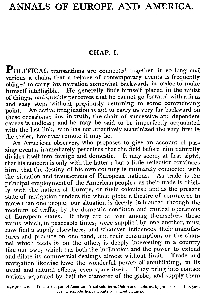 ―3― ―3―
ANNALS OF EUROPE AND AMERICA.
CHAP. I.
POLITICAL transactions are connected together in so long and
various a chain, that a relater of contemporary events is frequently
obliged to carry his narration somewhat backward, in order to make
himself intelligible. He generally finds himself placed in the midst
of things, and quickly perceives that he cannot go forward with a firm
and easy step, without previously returning to some commencing
point. An active imagination is apt to carry us very far backward on
these occasions; for, in truth, the chain of successive and dependent
causes is endless; and he may be said to be imperfectly acquainted
with the last link, who has not attentively scrutinized the very first in
the series, however remote it may be.
An American observer, who proposes to give an account of pas-
sing events, immediately perceives that the field before him naturally
divides itself into foreign and domestic. It may seem, at first sight,
that his concern is only with the latter; but a little reflection convinces
him, that the destiny of his own country is intimately connected with
the situation and transactions of European nations. As trade is the
principal employment of the American people; as their trade is chief-
ly with the nations of Europe, or their colonies; and as the present
state of navigation renders the whole globe a theatre of commerce to
more than one people, our situztion is deeply influenced through the
medium of traffic, by the domestic condition and mutual operations
of European states. If they are at war among themselves, those
wants which, in peaceable times, were supplied by one another, must
now find a supply elsewhere, and whatever influences their manufac-
tures and produce on one hand, and their consumption, or the chan-
nel which feeds it, on the other, is deeply interesting to a country
like our own, which has both the inclination and the power to extend
and dilate its commercial dealings almost without limit. Trade and
navigation likewise have the wonderful power of annihilating, in its
usual and natural effects, even space itself. They bring into contact
nations separated by half the diameter of the globe, and supply them
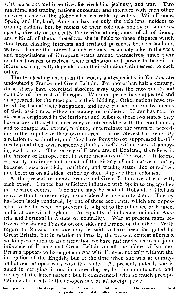 ―4― ―4―
with occasions and incentives for rivalship, jealousy, and war. Two
maritime and trading nations encounter and interfere with each other
in every corner of the globe that is accessible by water. With France,
Spain, and England, America has not only the relations incident to
trading nations, but, by means of their colonies, she is, in some re-
spects, directly or indirectly the territorial neighbour of all of them;
and with all of them, therefore, she is liable to those disputes which
flow from clashing interest and irritated passions, both on land and
water. Hence the interest which we may reasonably take in the wars
and negociations of European states among themselves, since their
conduct towards ourselves, their inclination and power to benefit or
injure us, so greatly depends upon their situation with respect to each
other.
The two leading nations in the world, and especially in Europe, are
undoubtedly France and Great Britain. For more than half a century,
these states have exercised absolute sway upon the movements and
councils of the rest of Europe. War and peace have appeared and
disappeared, for the most part, at their bidding. Other nations have en-
tered the lists at their instigation, and have carried on war by means
of their assistance, either in money or soldiers. If war has not, in
all cases, originated in the intrigues and bribes of these two states, they
have always thought it necessary to intermeddle with the combatants,
and to exasperate, extend, prolong, or terminate the warfare, accord-
ing to the impulse of their own interest. This interest has generally
a relation to each other, and they have fomented or suppressed hostili-
ties beyond their own respective limits, chiefly with a view of annoy-
ing each other. The history of France and of England, therefore, is
the history of Europe, and, in some measure, of the world. It forms,
especially, an important branch of the history of our native country,
because those are rich, maritime, and trading states like ourselves,
and beset us on all sides, either by their ships or their colonies.
At the present moment, France and Great Britain are at war with
each other. France has sufficient influence with Spain to engage her
in the same contest. The same may be said of Holland, if Holland
may, without impropriety, be considered as a separate state. Turkey
has been lately rendered, by one of these accidents, which are impos-
sible to be foreseen or prevented, subject to the influence of France,
and is at war with England. An equality of influence maintains Aus-
tria and Portugal in a state of neutrality. War at present rages be-
tween Russia and Prussia on one side, and France on the other. With
regard to Russia, this war may be said to have been instigated by
Great Britain, but in relation to Prussia, the present contest affords a
striking exception to an observation we have just made, as to the joint
influence of France and Great Britain on all the affairs of Europe.
Prussia appears to have gone to war with France, not only without the
instigation of the English, but at the time when she was at enmity,
and almost at open war, with that state. At present, indeed, she is
aided in carrying it on, in some degree, by the countenance and
money of the latter nation; but it commenced with so much precipi-
tation as to preclude the co-operation of all foreign powers.
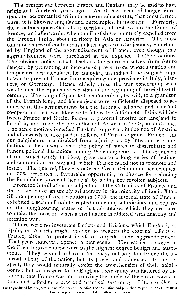 ―5― ―5―
The present war between France and England may be said to have
originated fourteen years ago. As it has been of longer dura-
tion, and accompanied with more memorable events, than most former
wars, it is likewise singular and unexampled in its origin. Formerly,
these nations quarrelled about territory, at first within the limits of
France, and afterwards, when the English were entirely expelled from
the French limits, about territory in Asia or America. The most
common source of contention, in later ages, was the jealousy entertain-
ed by England of the aggrandizement of France, even though that
aggrandizement were purchased at the expence of other nations.
The obvious policy which leads us to secure ourselves from future
danger, by preventing an increase of power in one whose situation and
temper are best calculated for annoying us, induced the English to go
to war to prevent France from acquiring new provinces in Italy, Flan-
ders, or Germany. Hence chiefly arose the war concerning what
was termed the Spanish succession, at the beginning of the eighteenth
century. The king of Spain left his dominions, by will, to a grandson
of the French king, and his subjects were sufficiently disposed to ac-
quiesce in this arrangement, but the intimate alliance and constant
co-operation that was likewise to follow the fulfillment of this will be-
tween France and Spain, formed a powerful motive for England to
forbid it, and to aid the pretentions of Austria to the Spanish throne.
The same motives impelled England to go war, in defence of Austria,
and afterwards to take part in defence of Prussia, against France. As
our neighbours are disabled from injuring us by intestine war and
faction, it has always been the policy of states to disseminate and
foment political dissentions among their neighbours. The expulsion
of the Stuart family in 1688, gave rise to a long series of factions
and commotions in England, which France failed not to promote and
foster. The quarrel, likewise, between Great Britain and her colonies,
in 1776, presented a favourable opportunity to France for reducing
the formidable power of her rival, by aiding her revolted subjects.
From the humiliation or subjection of the Calvinists of France, and
the extinction of an unruly aristocracy in the minority of Louis XIV,
till the opening of the revloution in 1788, the internal state of France
exhibited a scene of uninterrupted order and submission, and depriv-
ed the neighbouring states of that advantage, which they are sure
to make the most of, when a rival nation is afflicted with anarchy and
intestine war.
There were no inveterate factions and divisions, which England, or
Spain, or Austria might employ to weaken the external efforts of
France, either to protect itself, or impede their aggrandizement.
That year, however, opened a new scene. The earliest changes in
the French government were in the highest degree benign and auspi-
cious. They seemed to have a tendency, not only to advance the in-
ternal felicity of the nation, but its power and opulence. In this re-
spect, they would naturally excite the apprehension of their neigh-
bours; but with regard to the English, their vanity was flattered by the
notion, that France was only copying the model of their own constitu-
tion, and affording a new and practical testimony of its excellence.
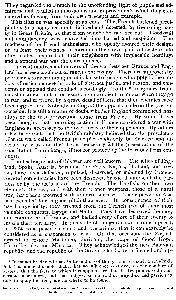 ―6― ―6―
They regarded the French in the unoffending light of pupils and ad-
mirers, and exulted in innovations and improvements which they con-
sidered as flowing from their own precepts and example.
This illusion was speedily at an end. The French hastened preci-
pitately to a point, as much disliked and detested, by the ruling par-
ty in Great Britain, as that from which she had set out. Good-will
and complacency were converted into hatred and suspicion. The
madness of the French enthusiasts, who openly avowed their design,
or, at least, their wishes, to introduce their own political system into
other states, inspired all their neighbours with implacable hostility,
and a general war was the consequence.
The real motives and movers of the war between France and Eng-
land have been a subject of much controversy. There are supposed, by
politicians, to exist among mankind, a set of people who apply to the con-
duct of nations a certain scale of abstract justice and reason, and con-
demn or applaud that conduct accordingly. To this* imaginary tribu-
nal, statesmen think it necessary or convenient to appeal when they go
to war, and to prove, by a grave detail of facts, that their enemies have
been aggressors. Notwithstanding all the appeals made on the present
occasion, it is still a matter of doubt whether England commenced hos-
tility, or the first provocation came from France. By some it has
been thought, that the ruling faction in France considered a war with
England as necessary to the overthrow of their opponents By others
it has been said, that the British ministry believed that the prevalence
of what were called French principles could only be checked and di-
verted by war, and that it was necessary for the preservation of the
constitution from change, if not for protecting the territory from con-
quest.
The leading events of this war are well known. The allied of Eng-
land, Spain, Austria, Sardinia, the Pope, Naples, Holland, and Rus-
sia, have been defeated, repulsed, disarmed, or subdued by France.
Several confederacies have been dissolved by the disunion of the par-
ties, or by the victories of the French. The English, on their own
element, the sea, and with their proper weapons, those of a naval
war, have been crowned with uniform success. Their power in Asia
has ascended to a higher pitch than ever. In consequence of their
naval superiority, they wrested from the French two of their most
valuable conquests, Egypt and Malta. They have destroyed the navy
and commerce of France, and baffled every effort of their enemy to
invade their territory. In this state of things the two nations agreed,
in 1802, to a peace so short and precarious, that it can scarcely be
considered as a suspension of war. On that occasion, the English
agreed to restore Martinico, Surinam, the Cape of Good Hope,
Porto Farraio, and Minorca. They acknowledged the new Batavian
republic, and the republic of the Seven Islands, both formed and up-
* It cannot be denied that, in the nature of things, there is such a standard;
but it is unquestionable that it has no influence whatever on the conduct of
states; that the facts to which it is applied are almost always involved in in-
curable uncertainty, and that judges, so far void of prejudice and passion as
duly to apply this test, are no where to be found.
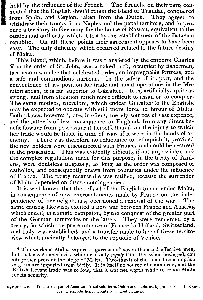 ―7― ―7―
held by the influence of the French. The French, on their part, con-
sented that the English should retain the island of Trinidad, conquered
from Spain, and Ceylon, taken from the Dutch. They agreed to
withdraw their troops from Naples and the papal territory, and to pro-
cure a territory in Germany for the house of Nassau, equivalent to the
estates and authority which it lost by the establishment of the Batavian
republic. On all these points their agreement appears to have been
easy. The only difficulty which occurred related to the future destiny
of Malta.
This island, which, before it was transfered by the emperor Charles
V to the order of St. John, was a naked rock, occupied by fishermen,
has become, under that celebrated order, an impregnable fortress, and
a safe and commodious harbour. In the safety of its port, and the
convenience of its position for trade and naval operations in the Me-
diterranean, it is far superior to Gibralter. It is, artificially, quite as
strong, and from situation much more difficult to assail or to conquer.
The same motives, therefore, which endear Gibralter to the English,
may be expected to operate with still more force in favour of Malta.
Both places, however*, are, in effect, merely sources of vast expence,
and the latter is of less consequence to England, from any direct be-
nefit flowing from possessing it herself, than from the injury to which
her trade would be liable in time of war, if it were in the hands of an
enemy. There was therefore no reluctance to relinquish it, provided
the new holders were disconnected with France, and could be secured
in the possession. This was evidently difficult, if not impossible; and
the complex regulations made for this purpose, in the treaty of Ami-
ens, were doubtless nugatory, as long as the order was composed of
catholics, and consequently drawn from countries under the influence
of France. The treaty meanwhile was ratified, because the surrender
of Malta depended on future contingencies.
It is well known that the refusal of the English to surrender Malta,
in consequence of new encroachments made by France on the inde-
pendence of her neighbours, occasioned a renewal of the war. The
same causes, likewise, excited a new war between France and Austria,
which ended, in a single campaign, by the conquest of the greater part
of the German territories of the latter. They were redeemed by a
treaty, in which the pre-eminence of France in Holland, Switzerland,
and Italy was established, and a transfer made to her of these territo-
ries, which anciently belonged to the republic of Venice.
* The works at Malta require a garrison of seven thousand effective men,
but that naval superiority which can only supply Gibralter when besieged, can
altogether prevent the siege of Malta. Two-thirds of the annual consumption
in grain are imported from Sicily. It is itself no source of commerce, and the
British Levant trade was so low, that it was not worth while to retain Malta
for its security.
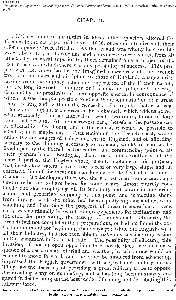 ―8― ―8―
CHAP. II.
THE cessation of hostilities in every other quarter, allowed the
French, in the early part of the year 1806, once more to direct all their
efforts against Great Britain. As that island was wholly inaccessible
except by water, as its colonies and commerce were secured from all
attacks by its naval superiority, there remained only a project of di-
rect invasion, in which there was any possibility of success. This pro-
ject was recommended by the imagined superiority of the French
troops in numbers and discipline to those of England, a superiority
arising from the military habits and experience of the French nation,
and the long internal tranquility and pacific institutions of the Eng-
lish, and by the proximity of their opposite shores, in consequence of
which, it was thought possible to effect the disembarkation of a great
army in England, without the necessity of a regular battle at sea.
France and England are separated by a channel, which widens some-
what gradually, from an interval of twenty-two miles, to one of four
times that breadth. At the narrowest part, therefore, the passage can
be effected in a few hours, and at the widest, it would be possible to
effect it in a single day. That station on the French coast, which
unites the advantages of being nearest to England, and of affording
security to the shipping necessary to invasion, would, of course, be
fixed upon by the French as the centre and commencing point of all
their preparations. Boulogne, about forty miles south-east of the
nearest part of the English shore, is so far suitable to this purpose,
that its shallow waters prevent the access of very large ships, and an
extensive line of fortifications can keep a hostile fleet at a harmless
distance. To Boulogne, therefore, the war between France and Eng-
land may be said to have been, for some years, almost entirely con-
fined: one side employing all its ingenuity and power in mustering
armies and preparing shipping at this point, and protecting them
from injury; while the other had been equally vigilant and active in
watching and disturbing the progress of these preparations. One
party was continually in search of new expedients for facilitating, and
the other for preventing, the passage of the channel. Hitherto, the
French had not completed their preparations, or had not found the op-
portune moment for beginning their voyage; while the English, with
all their industry, had not been able to make any sensible impression
on the armament in its actual state. The possibility of effecting this
invasion, if not in open opposition to a hostile fleet, yet in conse-
quence of a certain state of wind and weather, by which one would be
enabled to move forward, and the other be hindered from advancing,
impressed the English government with a great and salutary terror.
They saw the necessity of providing a great military force to oppose
the invading army on its landing, and it has long been anxiously en-
gaged in deliberating on the best mode of forming and distributing this
military force.
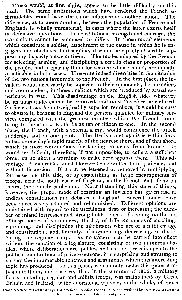 ―9― ―9―
There would, at first sight, appear to be little difficulty on this
head. The same institutions which have rendered the French so
formidable, would have the same influence on another nation. The
difference, as to mere number, between the population of France and
England, is wholly immaterial, in cases where the latter exerts itself
in defensive operations. In constitutional strength and courage, the
two nations cannot be supposed to differ. In those moral elements
which constitute a soldier, attachment to the cause in which he is en-
gaged, and obedience to discipline, it would be equally absurd to sup-
pose any disparity between them. The modes adopted by the French
for selecting, arming, and disciplining a certain class or proportion of
the people, and preparing them for service when wanted, are equally
practicable in both cases. There are indeed diversities in the situation
of the two nations favourable to the French. In the first place, the in-
vaders would necessarily be superior to their opponents, both soldiers
and commanders, in those qualities which are produced by actual ex-
perience in war. This disadvantage on the English side, whatever
be its magnitude, cannot be removed, the must therefore be endured.
So far as it can be outweighed by superior numbers, it would be easy
to obviate it, because in England the persons qualified for military ser-
vice, compared with the greatest number which the French could
bring to the attack, would be as ten or fifteen to one. In the second
place, the French, with a veteran army, would commence the attack
suddenly, and at one point. The British metropolis is within forty
miles, or one day's rapid march, of the nearest shore, and of that shore
which is most commodious for landing an army from France. It
would be difficult, therefore, if not impossible, to collect a sufficient
force, on so short a warning, to make head against them. This ad-
vantage, if incurable, must likewise be submitted to in patience, and
without discussion. If it can be lessened or removed by multiplying
fortresses on this side, or by establishing as large encampments of
troops, near the south coast of England, as the French shall form on
theirs, the remedy is obvious. Notwithstanding this state of things,
however, the proper mode of resisting an invasion has given rise to
endless consultations and debates in England. Several modes have
been successively adopted and relinquished. Different opinions are
maintained with regard to the usefulness, first, of increasing the num-
ber of inland fortresses and strong holds; next, of relying on the aid
of large bodies of volunteers; thirdly, of different modes of enrolling,
equipping, and disciplining the inhabitants who are of a military age
and constitution; and, fourthly, of augmenting, decreasing, or distri-
buting the regular army. As no system can be carried into effect
without the sanction of a legislature, consisting of two numerous bo-
dies, whose deliberations are public, and as the press is open to the
political lucubrations of private persons, it is surprising and amusing to
survey the innumerable schemes and arguments which this interesting
topic has produced. In this place, we can only make this general al-
lusion to them, and observe, that, in the summer of 1806, a military
force, including regular and militia troops, was maintained, by Great
Britain and Ireland, at the enormous expence, in the whole, of more
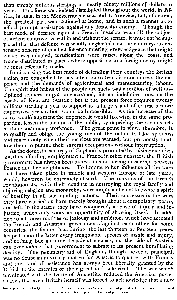 ―10― ―10―
than twenty millions sterling, or nearly ninety millions of dollars, a
year. This force was indeed distributed throughout the world, in Af-
rica, in Asia, in the Mediterranean sea, and in America, but, of course,
the greatest part was stationed at home, and in such a manner as to
afford prompt assistance against any domestic enemy. Though the
best made of defence against a French invasion was still the subject
of ardent controversy within and without the senate, it must not be sup-
posed that that defence was wholly neglected: on the contrary, an ex-
tensive scheme of conduct for encountering every exigence that might
ensue was adopted, fortifications were raised along the coast, and
troops distributed in places where opposition to a foreign army might
be most effectually made.
In discussing the best mode of defending their country, the British
nation are compelled to pay attention to two circumstances: the ex-
pence and the demands of agricultural and manufacturing labour.
The spirit and habits of the people are such, that a million of well dis-
ciplined soldiers might be encamped, for an indefinite time, on the
coasts of Kent and Sussex; but if the present force requires twenty
millions sterling a year to support it, a larger, and of course a more
expensive, preparation would be impossible. As the increase of the
army would augment the expence, it would likewise, in the same pro-
portion, lessen the income of the public, by depriving the various arts
of their customary workmen. The great point in view, therefore, is
to qualify and oblige the young men of the nation to take up arms,
and march only when their services are wanted, but previously to al-
low them to pursue their several occupations without interruption.
As the domestic security of England is promoted by raising enemies,
and thus affording employment to France in other quarters, the British
government has always been industrious in sowing dissention between
France and her neighbours. To impute to her influence all the wars
that have taken place in middle and western Europe of late years,
would, however, be extremely absurd. The maxims of the French
revolutionists, with their conduct in destroying the royal family and
abjuring religion and monarchy, were amply sufficient to excite a spirit
of hostility in all surrounding nations. Their successes in the wars
they have carried on have merely brought about a compulsory peace,
and left, in the states they have conquered, a sense of injury and in-
justice, which only waits an opportunity of showing itself. In addi-
tion to all those motives of jealousy and ambition, which have actuated
the French and Austrian governments against each other for some
centuries, the former has, during the last thirteen or fourteen years,
heaped upon the latter every imaginable species of insult and injury,
and nothing but an utter despair of success, on the side of Austria,
can ever induce that government to submit to its present humiliating
destiny. The pecuniary aid of England, though never a principal,
was no doubt an auxiliary motive for Austria to quarrel with France,
and this kind of assistance has always been liberally granted by the
British to the enemies of their great and sole rival. The war which
terminated with the battle of Austerlitz reduced the Austrian power
so low, that even Britain herself was forced to acknowledge that a new
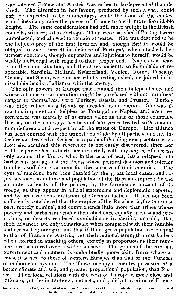 ―11― ―11―
war between France and Austria was rather to be deprecated than de-
sired. The diversion in her favour, produced by such a war, could
only be expected to be momentary, while the issue of the contest
would inevitably raise the power of France to a still more formidable
height. The same considerations had still more weight in the British
councils, with regard to Portugal. They were satisfied if Portugal were
unmolested, and allowed to remain at peace. She was destined to be
the helpless prey of the first invader, and, though Britain would be
obliged to exert herself in defence of Portugal, when attacked, her
utmost exertions, though expensive and injurious to herself, would be
wholly ineffectual with regard to their proper end. Naples was near-
ly in the same situation, and the states anciently so formidable or re-
spectable, Sardinia, Holland, Switzerland, Venice, Rome, Tuscany,
Genoa, and Spain, were either wholly extinguished, or joined in in-
dissoluble bonds of alliance with the enemy.
The only powers of Europe that retained their independence, and
whose alliance or co-operation might be purchased without imminent
danger to themselves, were Turkey, Russia, and Prussia. Turkey
was little valued as a friend, or dreaded as an enemy. She was al-
most as impotent and helpless as Portugal or Naples, and even her
commerce was scarcely of as much value as that of those countries.
Russia, on the contrary, has been of late years treated with uncom-
mon deference and respect by all the states of Europe. Her alliance
has been courted with the utmost solicitude by all parties, and her in-
terference dreaded or desired as capable of deciding every controversy.
How she acquired this reverence is not easily discovered, since her
military power has hitherto been exerted, with any degree of success,
only against the Turks, who, in the arts of war, have relapsed into
barbarism, and against the Poles, whose political disunion and inferior
numbers sufficiently account for the success of their enemies. The
eyes of mankind have been dazzled by the great local extent and ra-
pid advances in culture and population of the Russian empire; by the
absolute authority of the prince; by the formidable amount of its
troops, as they appear in official statements and deplomatic reports;
and by its assiduous imitation of German tactics. It has not been
sufficiently considered that the empire of the Russians is, for the most
part, merely nominal, and comprehends little more than tribes whose
poverty and barbarism render their obedience equally useless and pre-
carious, or deserts rendered uninhabitable by sterility or cold; that
their advances are only remarkable when compared with their humble
and recent beginnings; and that if their gross population were equal
to that of France or Austria, yet their national strength must be less
when exerted in attacking others, exactly in proportion as their num-
bers are scattered over a wider surface. The genius of the Russian
government and manners is undoubtedly more akin, from whatever
cause it arises, to those of western Europe, than that of the Turkish
or mahometan system. The Turks occupy a country possessed of a
better climate and soil, and greater proportional population, than Rus-
sia. Their local relations with the west of Europe is more close and
intimate, yet the institutions, and arts, and political maxims of France
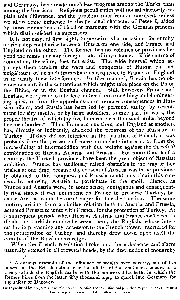 ―12― ―12―
and Germany, have made much less progress among the Turks than
among the Russians. Religious peculiarities will not satisfactorily ex-
plain this difference, and the problem must remain unsolved, unless
we allow some influence to the personal character of Peter I, aided
by those connections of blood or marriage with the German princes,
which distinguished his successors.
It is not easy, at first sight, to perceive what occasions for enmity
or rivalship could arise between Russia on one side, and France and
England on the other. The former has no colonies or provinces be-
yond the main, nor any foreign trade of importance. This source of
contention, therefore, does not exist. The wide interval which se-
parates them renders the wars and conquests of Russia on her
neighbours of no such immediate consequence to France or England
as to justify their interference. In like manner, Russia has no ob-
vious concern in the contentions which might take place on the Po or
the Rhine, or in the English channel. Still, however, France and
England were prone to interfere, either from a meddling and domineer-
ing spirit, or from the apprehension of remote consequences in Rus-
sian affairs, and Russia has been led by personal vanity, by resent-
ment for airy insults, or by large subsidies, to take part in wars, the
proper theatre of which lay five hundred or a thousand miles beyond
her own border.* Thus France at one time, and England at another,
has, directly or indirectly, checked the progress of the Russians in
Turkey. If they did not interfere in the partition of Poland, it was
probably from the pressure of more immediate interests, or from the
impossibility of intermeddling with due weight against the threefold
combination of Russia, Austria, and Prussia. For more than half a
century, the Turkish provinces have been the great object of Russian
ambition. France has studiously raised obstacles in the way of her
wishes at one time, because the consent of Austria was to be previous-
ly obtained to this conquest, and Prussia could only obtain this con-
sent, by allowing Austria to participate in the spoil. Hence, as
France and Austria were, in some sense, contiguous and consequent-
ly rival states, it was incumbent on France to preserve Turkey, be-
cause Austria would be the stronger for her destruction. The same
motive, arising from a similar relation both to Austria and Prussia,
actuated Prussia to unite with France, for the protection of Turkey. At
a subsequent period, when Russia, Austria, and France coallesced to
divide the Turkish empire between them, the English, whose inter-
est lay in preventing any accession to the French power, interfered for
the preservation of Turkey, and thereby drew down upon itself the
enmity of the Russian sovereign.
When the French revolution broke out, the abhorence and alarm
naturally excited in all crowned heads, by the destruction of monarchy
* A curious example of the influence of wealth over poverty, and of the
power of the British nation over the affairs of the continent, occurs in a
treaty which the English made with the empress Elizabeth, in which the
former hires from the latter fifty thousand men, to march into Germany for
the safety of Hanover.
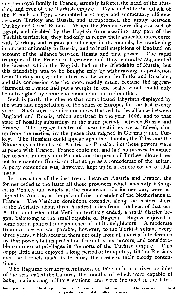 ―13― ―13―
and the royal family in France, strongly infected the head of the Rus-
sian, and even of the Turkish empire. This, added to the attack of
the French on Egypt, cemented a strange and momentary alliance
between Turkey and Russia, and strengthened the amity between
Turkey and Great Britain. When the French were dispossessed of
Egypt, and disabled by the English from assailing any part of the
Turkish territories, they had only to renew their amicable intercourse
with Turkey, and regain an influence in its councils, by awakening
its ancient animosity to Russia, and to instil suspicions of England on
account of the alliance between Russia and that power. The rapid
triumphs of the French in Germany and Italy naturally augmented
the interest which the English had in the friendship of Russia, but
this friendship was to be bought only by withdrawing its protection
from Turkey in case of a future war between the Turks and Russians,
and this concession was the more readily made, because the aggran-
dizement of France had put a weight in one scale, which could only
be outweighed by some enormous addition to the other.
Such is partly the clue to that complicated labyrinth displayed by
the wars and negociations of the states of Europe, for the last twenty
years. Such were the circumstances that led to the alliance between
England and Russia, which subsisted in the year 1806, and to that
state of hostility subsisting, at the same period, between Russia and
France. The proper theatre of these hostilities were, indeed, shut
up from the parties, by the peace that reigned in Germany and Tur-
key. The Russians could appear upon the Danube, the Elbe, and the
Rhine only as the ally of Austria or Prussia; but these powers were
at peace with France. France could not, and had no interest to induce
her to send an army into Poland, and the peace of Turkey allowed her
not to encounter Russia on that stage as a confederate of the sultan.
A petty contention was, however, kept up in a remote corner of Dal-
matia.
In pursuance of the last treaty between Austria and France, the
former ceded to the latter all those provinces which anciently belong-
ed to Venice, and which, at the conclusion of a former war, were as-
signed to Austria, as the price of the surrender of the Netherlands to
France. The Venitian dominions extended along the eastern shore
of the Adriatic, about three hundred miles from the head of that sea.
At the point where the Venitian territory ended, a small district be-
gan, belonging to the small republic of Raguza. Raguza enjoyed in
some sort a political independence of all its neighbours. A moderate
tribute or present was payable, however, to the Turkish sultan, every
three years, which secured them not only from all internal interference
by that power, but its protection from all other powers, and considera-
ble commercial privileges in the ports of the Turkish empire. This
happy little state enjoyed a long period of tranquility, till the Russians
and the French made its territory the scene of their bloody conten-
tions.
The Raguzan territory terminates, on the south, at a river or inlet
of the sea, called the Cattaro, the mouths of which were capable of
being made strong military stations, and were included in the latest
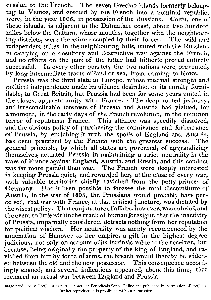 ―14― ―14―
cession to the French. The seven Grecian islands formerly belong-
ing to Venice, and erected by the French into a nominal republic,
were, in the year 1806, in possession of the Russians. Corfu, one of
these islands, is adjacent to the Dalmatian coast, about two hundred
miles below the Cattaro, whose mouths, together with the neighbour-
ing districts, were therefore occupied by their forces. The wild and
independent tribes in the neighbouring hills, united with the Russians
in carrying on a desultory and destructive war against the French,
and no efforts on the part of the latter had hitherto proved entirely
successful. In every other quarter, the two nations were prevented,
by long intermediate tracts of land or sea, from coming to blows.
Prussia was the third state in Europe, whose internal strength and
political independence made its alliance desirable, or its enmity formi-
dable, to Great Britain, but Prussia had been for some years united in
the closest apparent amity with France. The deep rooted jealousy,
and irreconcileable interests of Prussia and Austria had yielded, for
a moment, in the early days of the French revolution, to the common
terror of republican France. This alliance was speedily dissolved,
and the obvious policy of purchasing the connivance and forbearance
of Prussia, by enriching it with the spoils of England and Austria,
has been practised by the French with the greatest success. The
general principle, by which all states are governed, of aggrandizing
themselves, actuated Prussia in maintaining a strict neutrality in the
wars of France against England, Austria, and Russia, and this conduct
was far more gainful than war. The French were deeply interested
in keeping Prussia quiet, and rewarded her, at the close of every war,
with valuable territories chiefly ravished from the petty princes of
Germany. Had it been possible to foresee the total discomfiture of
Austria, in the war of 1805, the Prussians would probably have per-
ceived, that war with France, at that critical juncture, was dictated by
the wisest policy. That conjuncture of affairs, however, was so brief, and
the event so little within the reach of human foresight, that the inactivity
of Prussia, impartially considered, detracts nothing from her reputation
for political wisdom. Her neutrality was amply recompenced by the
annexation of Hanover to her empire, a gift in the highest degree
judicious, not only on account of its intrinsic value to the receiver, but
because, being originally the property of the king of England, and ra-
vished from him by force of arms, the breach would thereby be widen-
ed between the old and the new possessor. This consequence accord-
ingly ensued, and several indications appeared, about this time, that
menaced an actual war between England and Prussia.
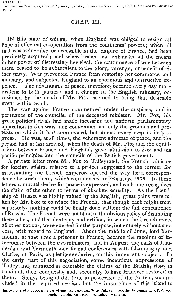 ―15― ―15―
CHAP. III.
IN this state of things, when England was obliged to resign all
hope of effectual co-operation from the continental powers; when all
that was vulnerable or accessible in the empire of France, had been
previously acquired; and when France had exhausted all the means
in her power of distressing her rival, the continuance of war between
them caused to be subservient to the glory, revenge, or benefit of ei-
ther party. War prevented France from restoring her commerce and
industry, and subjected England to an enormous and destructive ex-
pence. The advantages of peace, therefore, became every day more
evident to both parties; and a change in the English ministry, oc-
casioned by the death of Mr. Pitt, seemed to bring that desirable
event within reach.
The war against France commenced under the auspices, and in
persuance of the councils, of the deceased minister. Mr. Fox, his
great political rival, had made incessant and uniform parliamentary
opposition to this war, and condemned not only the grounds and pre-
texts on which it had commenced, but almost every step in its pro-
gress. He was, at all times, the vehement advocate of peace, and the
period had at last arrived, when the death of Mr. Pitt, and the equili-
brium between France and England, gave admission to Fox and his
pacific principles into the councils of the British government.
A private letter from Mr. Fox to Talleyrand, the French minister
for foreign affairs, relative to a project suggested to the former for
assassinating the French emperor, opened the way for a correspon-
dence between them, which commenced in February, 1806. In these
letters a mutual desire for peace is expressed, and each one recognizes
the claim of the other to terms of absolute equality. As the friend-
ship of Russia was highly valued by the English, great pains were ta-
ken by Mr. Fox to convince the French, that though each might treat
separately, nothing could be finally done without the full concurrence
of Russia. The French were not blind to the obvious policy of disuniting
these allies, and that dexterity and artifice, in which the French excel
all other nations, were exerted for the purpose, but entirely without suc-
cess, with regard to England. About the middle of June, lord Yar-
mouth, at that time a prisoner in France, became the medium of in-
tercourse between the two ministers, and in August, the earls of Lau-
derdale and Yarmouth held formal conferences with Champagny and
Clarke, at Paris, as plenipotentiaries, on this important subject. In
the early part of this negociation, some incautious expressions of
Talleyrand, admitted as equitable the claims of the British, first to
retain all their conquests, and, secondly, to have Hanover restored to
them. Sicily, being at this time in possession of the British, was in-
cluded in the required cession, but the importance of this island to
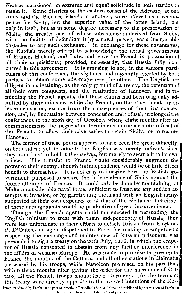 ―16― ―16―
France occasioned an extreme and equal solicitude in both parties to
retain it. Some districts on the eastern coasts of the Adriatic, at one
time, and the Balearic islands at another, were offered as a recom-
pence for Sicily, but the superior value of the latter island, not
only in itself, but as in some degree necessary to the preservation of
Malta, the greater part of whose subsistence is derived from Sicily,
with the facility of defending it by a naval power, were insuperable,
obstacles to any such exchange. In exchange for these advantages,
the English merely offered to acknowledge the actual governments
of France, Holland, and Italy, and leave the French in possession of
all their acquisitions; provided, necessarily, that Russia fully con-
curred in this agreement. It is amusing to see, in the various parti-
culars of this conference, the vigilance and ingenuity exerted by both
parties, to obtain some advantage over the other. The English are
diligent in maintaining, as the only ground of a treaty, the retention of
all their own conquests, and the restitution of Hanover, and in re-
minding the French agents, that these claims had been originally ad-
mitted by their minister, while the French, on the other hand, by si-
lence or evasion, escape from the consequences of their first conces-
sion, and, by fluctuating between concession and refusal, prolonged the
conferences to the sixth day of October, when, eight months after its
commencement, the negociation terminated in the absolute refusal of
the French, to allow their adversaries to retain Sicily, or to restore
Hanover.
The former of these points appears to have been the great difficulty,
on both sides; yet its value to the English was merely indirect, since
they aimed not to hold it themselves, but merely to secure it to its own
prince. The transfer to France would considerably augment the
power of their enemy, though its independence would be of little direct
benefit to themselves. It is not easy to imagine how the British go-
vernment purposed to secure the independence of Sicily against the
future attempts of France. It could only be done by maintaining at
Malta a considerable naval force, sufficient to frustrate any sudden at-
tempts at invasion, or by garrisoning the island with an English army,
supported at their own expence, or at that of the Sicilians; but either
of these arrangements would be productive of great inconvenience.
Though the French agents could not succeed in persuading the
English minister to treat with them independently of Russia, they
were less unfortunate in their efforts to detach Russia from England.
P. D'Oubril, an agent dispatched to Paris for making arrangements
respecting the exchange and maintenance of Russian prisoners, was
persuaded to sign a treaty on the 20th July, 1806, in which the empe-
ror of Russia consented to abstain from any further interference in
the affairs of western Europe. He was made to promise to give up to
France the mouths of the Cattaro, and all other stations in Dalmatia
possessed by his troops, while Napoleon promised on his part that,
within three months after giving the order for the surrender of Cat-
taro, all the French troops should leave Germany. As the terms of
this treaty were directly opposite to the avowed intentions of the Rus-
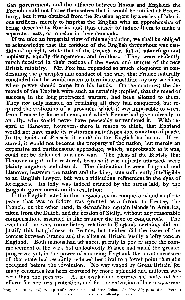 ―17― ―17―
sian government, and the alliance between Russia and England, the
French could not flatter themselves that it would be ratified at Peters-
burg; but it was obtained from the Russian agent by a series of labori-
ous artifices, merely to impress the English with an apprehension of
being deserted by Russia, and thus either to induce them to make a
separate treaty, or to relax in their demands.
If we take an impartial view of this negociation, we shall be obliged
to acknowledge that the conduct of the English throughout was can-
did and upright, while that of the French was full of subterfuge and
sophistry, equally disingenuous and fruitless. They were evidently
much deceived in their notions of the views and temper of the new
British ministry. Mr. Fox had expended so much eloquence in con-
demning the principles and conduct of the war, that France naturally
concluded that he would hasten to terminate hostilities by any sacrifice,
when power should come into his hands. On the contrary, the de-
mands of the English were such as certainly implied, that the meed of
success, in the long protracted warfare, had been allotted to them.
They not only insisted on retaining all they had conquered, but re-
quired the restitution of a province, which it was impossible to wrest
from France by force of arms, and which France had given already to
an ally, who would never have peaceably surrendered it. With re-
gard to Hanover, however, there is reason to think, that England
would not have made its restitution an indispensible condition of peace.
In the hands of Prussia it could do the English no harm. If re-
stored, it would not become the property of the nation, but merely an
expensive and burthensome appendage, which, unprofitable as it was,
could not be defended in a new war. The pleas of the British, that
Hanover ought to be restored, because it was unjustly attacked, were
plainly nugatory and absurd. The distinction between England and
Hanover, between the nation and the king, was sufficiently intelligible
to an English lawyer, but was a ridiculous refinement in the eyes of
foreigners. Its folly was indeed evinced by the stress laid, by the
English government, on its restitution.
If the English acted in this negociation as conqueors, and as if the
peace that was to follow was granted as a favour to France, the
French, on the other hand, in demanding certain islands in America,
taken from the Dutch, and the cession of Sicily, without any reasonable
compensation, assumed in like manner the tone of conquerors. The
events of the war, immediately relative to England, certainly did not
justify this haughtiness in France, but neither did the issue of the
contest between France and the allies of Britain justify a lofty tone in
England. Both nations had advanced greatly in power since the com-
mencement of the war, but undoubtedly France had made the greater
progress; yet, in the power of annoying England, the naval successes
of that state had certainly reduced her rival to a lower point than she
occupied before the revolution. No war waged by Great Britain for
many centuries has been crowned by more splendid and uniform suc-
cess than the present. As an insular and commercial state, all her
efforts for her own protection, and for the extension of her proper em-
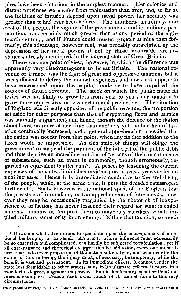 ―18― ―18―
pire, have been victorious in the amplest manner. Her colonies and
distant provinces were safer from molestation than ever, and, so far as
the facilities of invasion depend upon naval power, her security was
greater than it had ever been before. The numbers, unanimity, and
zeal of the people, the vigour of the government, and its military pre-
paration, was certainly much greater than at any period of the eigh-
teenth century; and if France could muster greater armies than for-
merly, this advantage, however, real, was probably outweighed by the
depression of her naval power, if not by those favourable circum-
stances, already mentioned, in the internal state of Great Britain.
There was one point of view, however, in which the difference was
apparently very disadvantageous to Great Britain. The national re-
venue of France was the fruit of great and oppressive taxation, but it
was sufficient to defray the annual expences, and does not appear to
have encroached upon the capital fund, or to have impaired the
sources of future revenue. The stock on which the public made its
levies was not likely to grow less from year to year, nor taxation to
grow more oppressive, or less certain and productive. The situation
of England was directly opposite: of the public revenue, the proportion
set aside for other purposes than that of supporting fleets and armies
was annually augmented, and hence, though the defence of the nation
should cost no more at one time than another, yet the burthen of tax-
ation continually increased, and a general apprehension prevailed that
the nation was not far from that point, when any further addition to the
taxes would be impossible. As this state of things will oblige the
government to suspend the payment of the interest of the public debt,
and thus deprive an incredible number of persons of their usual means
of subsistence, such an event is commonly, though erroneously, re-
garded as equivalent to utter ruin*. A peace, by lessening the current
expences of the state, diminishes taxation; or, at least, prevents its an-
nual increase. Hence it is immediately conducive to the well-being
of the people, while, at the same time, it puts the dreaded catastrophe
further off. Such, however, is the national spirit of the English, that
the pressure of immediate, or the apprehension of future evils, how-
ever they may be occasionally magnified by the rhetorick of inexpe-
rience or of faction, has never lessened their regard for what is called
national honour, or tempted them to make any sacrifice, which im-
plied military superiority in an enemy. Either that taxation, so much
* It is somewhat adventurous to speculate upon the consequences of a na-
tional bankruptcy in England. An event, whose influence must necessarily
be so extensive and complicated, can hardly be subjected to calculation; yet if
all extravagance and rhetorical exaggeration be laid aside, every one must al-
low, that, whatever proportion of the nation suffers by it, and whatever be the
extent of this suffering, the injury must, of necessity, be temporary, while the
benefit is vast and permanent. In its immediate effects, it cannot render the
state less formidable to other states, and, in its ultimate effects, it must, in a
wonderful degree, augment its power. Public bankrupt is not without nu-
merous examples. France itself owes much of its actual force to this very
circumstance.
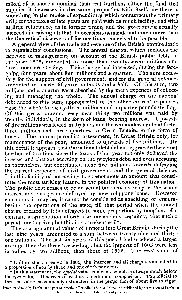 ―19― ―19―
talked of, is more a nominal than real burthen, either the fund that
supplies it increases in the same proportion with itself, or there is
something in the modes of expenditure which counteracts the primary
evil; for the taxes of late years are paid with as much facility, and with
as little reluctance, as in former times, and the government actually
succeeds in raising all that its occasions demand, and much more than
the theoretical observers of former times conceived to be possible.
A general view of the trade and revenue of the British empire leads
to astonishing conclusions. The annual charge, which includes the
expence of management, on account of the British public debt, in
the year 1806, amounted to more than twenty-seven millions and
three quarters sterling. This charge had increased, during the fore-
going four years, about four millions and a quarter. The sum neces-
sary for the support of civil government, and for the general defence,
amounted to nearly fifty-five millions and a half. Of this sum, two
millions and a quarter were absorded by the mere expences of collect-
ing and managing the whole. The annual charge on the national
debt added to this sum, appropriated to the other current expences,
raise the whole to eighty-three millions and a quarter pounds sterling.
Of this gross amount, very near thirty-two millions was paid by
wealthy individuals, in the form of loans, bearing interest. Upwards
of five millions was levied in Ireland, and the remainder, or about forty-
three millions and three quarters, in Great Britain, in the form of
taxes. The annual parochial assessment, in Great Britain only, for
maintenance of the poor, amounted to upwards of five millions. By
this detail it appears, that the national debt did not aggravate the actual
burthen of taxation, since the loans of this year not only defrayed the
interest and charges accruing on the previous debt, and even accruing
on themselves, but contributed near five millions towards defraying
the current expences of civil government, and the general defence.
It is this facility of borrowing to so enormous an amount that consti-
tutes the most striking feature in the political economy of this nation.
The public debt ceases to be an actual burthen, as long as the whole
interest and charges are defrayed by new voluntary loans. However
enormous it may be, it cannot be considered as shackling or encum-
bering the operations of the state, till that period when the annual
charge created by it is defrayed, in some proportion, by taxation. Its
constant augmentation affords the melancholy certainty, that such a
period must arrive; but this is no present evil*.
The average annual value† of imports into Great Britain, during the
last nine years, amounted to sum between twenty-nine and thirty-
one millions. The last six years of this period had produced a larger
average than the three preceeding; but the imports of 1805 were less
in value, by two millions, than those of 1802. The real value of
* On the stock created in 1806, the interest and all charges amounted to
a proportion of nearly three and one-sixth per cent.
† In this statement, the official value is meant, which is always much below
the real value. It serves at least as a medium of comparison. The official to
the real value is commonly estimated in the proportion of about five to eight.
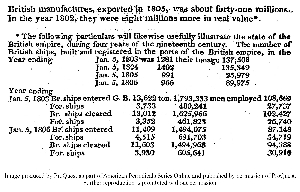 ―20― ―20―
British manufactures, exported in 1805, was about forty-one millions.
In the year 1802, they were eight millions more in real value*.
* The following particulars will likewise usefully illustrate the state of the
British empire, during four years of the nineteenth century. The number of
British ships, built and registered in the ports of the British empire, in the
| Year ending |
Jan. 5, 1803 |
was |
1281 |
their tonage |
137,508 |
|
Jan. 5, 1804 |
|
1402 |
|
135,349 |
|
Jan. 5, 1805 |
|
991 |
|
25,979 |
|
Jan. 5, 1806 |
|
966 |
|
89,975 |
| Year ending |
|
|
|
|
|
|
| Jan. 5, 1803 |
Br. ships entered G.B. |
13,622 |
ton. |
1,793,333 |
men employed |
108,669 |
|
For. ships |
3,733 |
|
480,241 |
|
27,737 |
|
Br. ships cleared |
13,012 |
|
1,625,966 |
|
102,427 |
|
For. ships |
3,352 |
|
461,823 |
|
26,740 |
| Jan. 5, 1806 |
Br. ships entered |
11,409 |
|
1,494,075 |
|
87,148 |
|
For. ships |
4,515 |
|
691,703 |
|
34,719 |
|
Br. ships cleared |
11,603 |
|
1,494,968 |
|
94,388 |
|
For. ships |
3,930 |
|
605,641 |
|
30,910 |
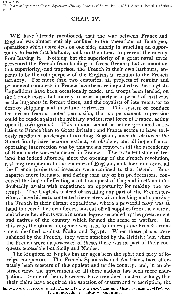 ―21― ―21―
CHAP. IV.
WE have already mentioned, that the war between France and
England was almost entirely confined to the operations at Boulogne,
operations which consisted, on one side, chiefly in watching an oppor-
tunity to leave that harbour, and, on the other, to prevent the enemy
from leaving it. Nothing but the superiority of a great naval force
prevented the French from landing in Great Britain; but to maintain
this superiority, and imprison the French in their own harbours, ap-
pears to be the sole purpose of the English, in relation to the French
territory. For more than two centuries, all projects of regular and
permanent conquests in France have been relinquished by the English.
Expeditions have been occasionally made, and troops been landed, on
the French coast, but merely to assist a party at a period of civil war,
as the hugonots in former times, and the royalists of late years, or to
destroy shipping and maritime fortresses. This system of conduct
has arisen from a rooted persuasion, that no permanent impression
could be made against the military and internal force of France, acting
upon its own ground. This opinion cannot be better grounded in re-
lation to France than to Great Britain; and France seems to have seri-
ously meditated no design of invading England, since the claims of the
Stuart family have become extinct, or obsolete, and all hope of a co-
operating insurrection was by this means removed, til the ascendency
of Buonaparte was established in France. The turbulent state of Ire-
land has indeed afforded, since the opening of the French revolution,
a strong temptation to the enemies of England, and, for some time, all
the French projects of invasion was confined to that island. Buo-
naparte, more fortunate and daring than any of his predecessors, con-
ceived the hope of effecting a total conquest of England itself, and un-
doubtedly awaits with impatience an opportunity for making the at-
tempt. The English, instead of assailing any part of the French ter-
ritory, have hitherto contented themselves with checking and opposing
the French in their distant expeditions, where a powerful navy was at
hand to recruit her own forces, and cut off all supplies from the enemy,
and where her efforts were in some degree seconded by the government
and natives of the country which formed the scene of warfare. In
this way, the utmost diligence was used to intercept the French arma-
ment destined against Malta and Egypt. When these places were
subdued by the French, they were attacked by the British; but, when
the French were dispossessed of these, there was no part of their con-
quests accessible but Sicily and Naples.
The kingdom of Naples has for ages been the sport and prey of fo-
reign conquerors. The French, Spaniards, and Austrians, have alter-
nately been masters of this opulent and fertile country, and, in an ab-
stract view, the government of all these nations has been mere usur-
pation. Some of them, however, have remained masters so long, that
their claim have acquired the sanction of custom and prescription, the
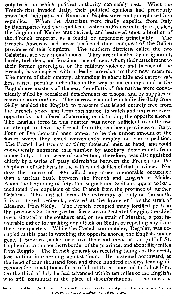 ―22― ―22―
only basis on which political authority can safely rest. When the
French first invaded Italy, their political opinions had previously
smoothed their path, and Rome and Naples were metamorphosed into
republics. When the Austrians were finally expelled from Italy
by Buonaparte, and the republican system in France entirely exploded,
the kingdom of Naples was revived, and bestowed upon a brother of
the French emperor, as a feudal or dependent principality. The
French, however, had never perfected their conquest of the Italian
provinces of the kingdom. The southern districts, called the two
Calabrias, are very mountainous. They are inhabited by an ignorant,
hardy, turbulent and ferocious race of men, whom their attachment to
their former sovereigns, or the military violence and licence of the
French, have inspired with a deadly aversion to their new masters.
The nature of their country, abounding in sharp hills and narrow val-
lies, raised peculiar difficulties in the way of an enemy; and as the
English are masters of the sea, the efforts of the natives were conve-
niently aided by occasional detachments of troops, and by supplies of
arms and ammunition. The narrow channel which divides Italy from
Sicily enabled the English to preserve that island entirely free from
the French yoke, and from this station to watch and improve every
opportunity that offered of alarming or disturbing the opposite shores.
The English force in this quarter was never sufficient to authorize
an attempt to drive the French from the southern provinces of Italy.
Four or five thousand men appear to be the utmost amount of the
forces which they could conveniently employ on one expedition.
The French had twenty or thirty thousand men at hand, and could
conveniently augment that number by auxiliary detachments from
upper Italy. This scene of contention, therefore, was distinguished
chiefly by a series of petty skirmishes between the French and the
shepherds of Calabria, in the vallies and defiles of that province. Nor
does the course of 1806 afford any other memorable occurence
than a useless battle between the French and English at Maida.
About the beginning of July, the English and Sicilians appear to have
meditated the expulsion of the French from the province of further
Calabria. This district forms the extremity of Italy on the south.
It is a rugged peninsula, severed at the lower end by the strait of
Messina, from Sicily. The French occupied many fortified posts in
this province, but their greatest force was collected at Reggio, the chief
town, situated at the southern end, on the strait of Messina, a post fa-
vourable either for making any attack on Sicily, or repelling any from
the same quarter. While the French commander, Regnier, was oc-
cupied at this post in watching the opposite shores, the English, under
general Stewart, landed near five thousand men, at the gulf of St.
Euphemia, in the northern border of the province, and about fifty miles
from Reggio. The French general, on receiving tidings of the event,
lost no time in marching against them. He hastened northward, at
the head of four thousand foot, and three hundred cavalry, leaving di-
rections for an additional force of about three thousand to follow him.
On the third of July he had advanced within ten miles of the English,
who still continued at the place of disembarkation. The news of
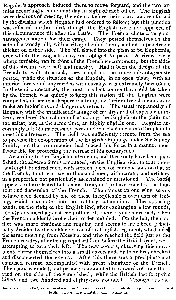 ―23― ―23―
Regnier's approach induced them to move forward, and the two ar-
mies accordingly came next day in sight of each other. The English
were desirous of meeting the enemy before their army was reinforced
by the division which Regnier had ordered to follow; but this junction
was effected on the third, though the English were not apprized of
this circumstance till after the battle. The French chose a very ad-
vantageous station for their camp. They posted themselves on the
side of a woody hill, with a village behind them, and an impenetrable
thicket on either side. The hill sloped into the plain of St. Euphemia,
over which the English army was obliged to pass. A river, every
where fordable, ran in front of the French encampment; but the sides
of this stream were soft and marshy. Had it been the design of the
French to wait an attack, they could not be more advantageously
posted, while the situation of the English, in an open plain, with an
inferior force, and unprovided with cavalry, was extremely hazardous.
In these circumstances, the most prudent course that could be taken
by the French was quietly to keep this station till the English were
compelled, either to a desperate attempt on their entrenchments, or to
make an inglorious and dangerous retreat. The usual impetuosity of
Regnier, with the manifest advantage of cavalry, and of superior num-
bers, rendered the scheme of attacking the English on the plain not
the safest, but, at the same time, an highly eligible one. Regnier ac-
cordingly left his inaccessible post, and marched down into the plain to
meet his adversary. The field was sufficiently remote from the sea
to prevent the co-operation of the English shipping, under Sir Sidney
Smith; but that commander had placed his force in a manner most
favourable for protecting the retreat of his countrymen.
According to the English statements, and these only have been pub-
lished, the adverse forces amounted, on the English side, to four thou-
sand eight hundred men, with sixteen pieces of cannon, and, on that of
the French, to at least seven thousand men, with cavalry and artillery
in a proportion not particularly ascertained or mentioned. The battle
appears to have lasted but a short time, and to have ended in the total
rout and dispersion of the French. The contest on one wing seems
to have been decided by one of these inexplicable movements of feel-
ing, which can enter into no military calculation. The opposing
bands, on the right of the English line, after exchanging a few rounds,
silently advanced against each other till other bayonets crossed, when
the French suddenly broke their order and fled. On the left, the con-
flict was more obstinate and regular, and seems to have been princi-
pally decided by the sudden arrival of an English regiment, who landed
the same morning from Messina, and who reached the field just as the
French cavalry, after being repulsed from before the British front, were
attempting to turn their left. The new comers, observing this move-
ment, threw themselves into a small cover, and, by their fire, checked
and disconcerted the enemy. After this there was a precipitate and
confused retreat, accompanied with great slaughter of the French.
The slain, wounded, and prisoners amounted to upwards of four thou-
sand on the side of the vanquished; while the British lost forty-five
killed, and two hundred and eighty-two wounded. Though the vic-
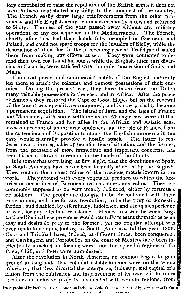 ―24― ―24―
tory contributed to raise the reputation of the British arms, it does not
seem to have contributed any thing to the conquest of the country.
The French easily drew large reinforcements from the other pro-
vinces, and the English army re-embarked shortly after, and returned
to Sicily. The rest of the year passed away without any military
operations of any consequence in the Mediterranean. The French,
shortly after this, had their hands fully occupied in Germany and
Poland, and could not spare troops for the invasion of Sicily, while the
destruction of their fleet in the preceeding year at Trafalgar disabled
them from making any efforts at sea. They were contented to de-
fend their own coasts and harbours, while the English, after this diver-
sion in Calabria, were satisfied with the quiet possession of Sicily and
Malta.
The naval power and commercial habits of the English naturally
led them to attack the colonies and remote possessions of their ene-
mies. During the present war, they have taken from the Dutch
many valuable possessions in the east, and the Africa. After the peace
of Amiens, they restored the Cape of Good Hope, but on the renewal
of the war it was speedily re-conquered, and is now probably become
a permanent acquisition. The island of Java, and the isles of France
and Mauricius, with some settlements in Madagascar, were all that
remained to France and her allies in the African and Asiatic seas.
Java, on account of its intrinsic opulence, and the isle of France, from
the convenience of its position to annoy the English commerce in the
east, would naturally provoke a hostile attack. The latter is ren-
dered nearly impregnable by peculiarities of situation, and the former,
from the pressure of more immediate and important concerns, has
been hitherto allowed to remain in the hands of the Dutch.
It is somewhat surprising, at first sight, that the dominions of Spain
in South America have never been formally attacked by the English.
They contain the richest mines of the precious metals known in the
world. They abound with every vegetable product, to which the lux-
uries or necessities of European nations annex any value. They are
commonly supposed to be very weakly defended, either by fortresses
or soldiers. The people are thought to be discontented with their
government, and ripe for any revolution; to be the prey of domestic
faction; and disabled, by effeminacy, indolence, and a long inexperience
of war, for any effectual resistance. Hence, in a war between Eng-
land and Spain, these provinces would naturally present themselves as an
easy and desirable prey to the former; yet no regular attempt was
ever made to obtain a footing in South America, till the year 1806.
Cuba and Trinidad have, indeed, at different times, been conquered;
and Carthagena and Portobello, on the coast of Mexico, have been in-
effectually attacked in former wars; but the splendid regions of La
Plata, Chili, and Peru were unmolested.
After the revolution in North America, an opinion began to gain
ground in England, that colonial establishments were on the whole
injurious; that they diverted the enterprise, industry, and capital of a
nation from the cultivation and improvement of its own soil to more
specious but delusive projects, connected with remote regions, from
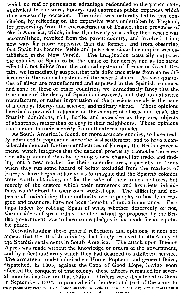 ―25― ―25―
which no real or permanent advantage redounded to the parent state,
equivalent to the wars, luxury, and enormous public expences which
they necessarily occasion. The mind was naturally led to this con-
clusion, by reflecting on the expensive wars undertaken by England,
for preserving, from the encroachments of France, these provinces of
North America, which, in less than twenty years after their rescue was
accomplished, revolted from the parent country, and involved it in a
new war, far more expensive than the former, and from observing
that Spain has become feeble and powerless since her empire was es-
tablished in the New World. The imagination naturally supposes
the colonies of Spain to be the cause of her decay, and as the same
effect did not follow from the colonial system of France or Great Bri-
tain, we immediately suspect that this difference arises from some dif-
ference in the colonial systems of the several states. As vast quanti-
ties of silver are manufactured and exported in the Spanish colonies,
and none in those of other countries, we immediately fancy that the
true cause of the decay of Spain is discovered, and that an extensive
manufacture, or rather importation of the precious metals is the bane
of industry, liberty, and science, and military virtue. These opinions
have had a powerful influence on the conduct of states, and made the
Spanish dominions, rich, fertile, and extensive as they are, objects
of abhorence, rather than of envy to their neighbours. These opinions
contributed to their security from all external attacks.
As South America is found, on more accurate enquiry, to have real-
ly advanced in population since the first settlement, and to have a con-
siderable demand for the manufactures of Europe, the British govern-
ment, which imagines that the national prosperity cannot be more es-
sentially promoted than by opening a new channel for trade, and find-
ing out a new market for their manufactures, especially in times
when they run some hazard of being excluded from the markets of
Europe, have begun of late years to imagine that the Spanish colonies
were worth obtaining, not for the sake of their mines or taxes, but
merely of the custom which their numerous and luxurious inhabi-
tants would afford to their own work-shops. The difficulty and ex-
pence of maintaining their authority over a people, so hostile in reli-
gion and manners, have not been thought of much importance. Per-
haps indeed by robbing Spain of what, whether deservedly or not,
she considers of great value, the chief advantage proposed by the Bri-
tish government was to have some pledges in its hands for an equita-
ble peace.
Notwithstanding these general reflections and opinions, it does not
appear that the British ministry had finally resolved to attack any of
the Spanish settlements in South America. The attack upon Buenos
Ayres was made without the knowledge or orders of the government,
and by a fleet and army which they had destined to a different service.
The armament under admiral sir Home Popham and general Baird,
dispatched, in 1805, against the Cape of Good Hope, having soon
effected the conquest of that colony, these officers remained for sever-
al months inactive on that station. Orders were dispatched to them
in September, 1805, to proceed with the fleet and part of the army to
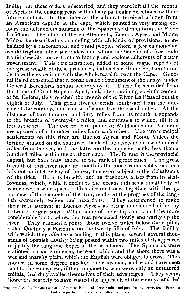 ―26― ―26―
India; but these orders miscarried, and they were left till the month
of April, in the ensuing year, without any particular directions for their
future conduct. In this interval the admiral received a letter from
an American captain at the cape, which painted in very strong co-
lours the defenceless situation of the Spanish settlements on the River
La Plata. The chief of these settlements, Buenos Ayres and Monte
Video, he described as abounding with all kinds of provisions, as in-
habited by a discontented and timid people, whom a few cannon-shot
would frighten into a surrender, and whom the benefits of a free trade
would speedily convert into voluntary and zealous adherents of a new
government. This representation, added to some vague reports of
the great wealth of these provinces, induced sir Home Popham to un-
dertake the expedition with the whole naval force at the Cape. Gene-
ral Baird consented that a considerable detachment of the army, under
General Beresford, should accompany it. These forces sailed from
the Cape of Good Hope in April, and, after obtaining a reinforcement
at St. Helena, they reached the mouth of the River La Plata about the
eighth of July. This great river descends southward from the inte-
rior of the country, in a course of about two thousand miles. At the
distance of two hundred and forty miles from its mouth it expands
to the breadth of twenty-five miles, and continues to widen, till it is
lost in the sea. The two extreme points of Maldonado and Anthonio
are upwards of a hundred miles from each other. The two principal
settlements on this river are Buenos Ayres and Monte Video, the
former situated on the southwest bank of the river, about two hundred
miles from the sea, and the latter on the opposite bank, less than a
hundred miles within the northern cape. The former is the provincial
capital, but both may aspire to the rank of great cities. The great
breadth of this river near its mouth is the more remarkable, because
it is not an inlet or bay of the sea, nor even subject to the vicissitudes
of the tides. Both its breadth and its freshness arises from its shal-
lowness, which, while it excludes the ocean, diffuses a small body of
water over a wide space. This circumstance, together with the ig-
norance of the channels of the river, rendered the progress of the Eng-
lish extremely tedious and hazardous. They determined to make
their first attempt at Buenos Ayres, as being undefended either by
bulwarks or garrisons. While some of their ships blockaded the more
considerable ports below, the rest proceeded slowly and warily up the
river. They reached a point, about twelve miles below the capital,
called Quelmay a Porichin, on the twenty-fifth of July. The facility
with which they affected a landing in this place, several several thou-
sands of Spanish cavalry being posted within two miles of it, appeared
to justify the sanguine hopes of the assailants. The Spaniards were
stationed on an eminence, between which and the shore there was a
wet and marshy plain, which the English were obliged to cross. This
morass in some degree checked their advance, and would have been
fatal to the enterprize, if their opponents, who were only an untutored
militia, had duly availed themselves of their advantages. They seem,
however, scarcely to have waited the approach of the enemy, and fled
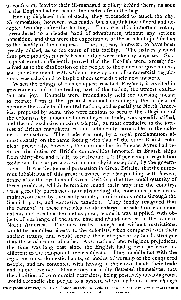 ―27― ―27―
in confusion, leaving their ill-managed artillery behind them, as soon
as the English had extricated themselves from the bog.
Having displaced this obstacle, they proceeded to attack the city.
No opposition, however, was made, but a capitulation offered and ac-
cepted two days after the landing. Thus was this important colony
surrendered to a slender band of adventurers, without any serious
opposition, and thus were the expectations of the assailants justified as
to the facility of the conquest. They appear, however, to have been
greatly misled, as to the cause of this facility. The natives yielded
thus precipitately, merely because they were taken by surprise. Sub-
sequence events sufficiently proved that the English were grossly de-
ceived as to the disaffection of the people to their ancient government,
and the attachment with which a new system of commercial regula-
tions was calculated to inspire them towards their new masters.
When the tidings of this conquest reached England, it excited in
government, and in the trading part of the nation, the utmost exulta-
tion and joy. Councils were immediately held for devising means
to extract from it the greatest national advantage; the project of
opening the trade to all neutral nations, and especially to North Amer-
ica, proposed by some who were anxious to secure the allegiance of
the colonists, by unbounded advantages in trade, was speedily stifled,
and the old exclusive maxims adopted, as most conducive to the inte-
rest of British manufactures, and sufficiently favourable to the colo-
nists themselves. The trade was put, by a royal proclamation, al-
most exactly on the same footing with that of the other British colo-
nies: previously, however, the commanders in Buenos Ayres had re-
duced the duties on British commodities imported in British ships
from thirty-five and a half, to twelve and a half per cent; a regulation
confirmed for the present, with some slight exception, by the govern-
ment. It was the general persuasion in Great Britain, that the nume-
rous inhabitants of this great province were languishing with fervent
desire after the products of Great Britain; that the small quantity of
these products, which heretofore found their way into the country,
were greedily purchased, notwithstanding the enormous price accu-
mulated on them by the scanty supply, the circuitous route through the
Spanish ports, and excessive taxation. They fondly imagined that
the removal of these obstacles would enlarge the sale to an enormous
extent, and create a demand as great, while it was supplied with ob-
jects of exchange of the same kind and abundance, as in the trade of
North America. The new trade, though not without restrictions,
would be boundless liberty to the colonists, when compared with their
ancient fetters, and would secure their allegiance by bonds stronger
than those of iron or of oaths. As to national and religious prejudices,
the time was long past since the English had grown perfectly in-
different to the religion of their subjects. They meddle not with the
legal customs, domestic habits, or modes of worship of the conquered
people, and are contented with having in their own hands their trade
and public revenue. Hence they naturally flattered themselves, that
the abolition of commercial restraints, being positively advantageous,
would reconcile the people to a system which made no other change
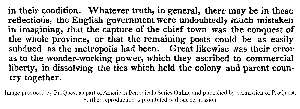 ―28― ―28―
in their condition. Whatever truth, in general, there may be in these
reflections, the English government were undoubtedly much mistaken
in imagining, that the capture of the chief town was the conquest of
the whole province, or that the remaining posts could be as easily
subdued as the metropolis had been. Great likewise was their error
as to the wonder-working power, which they ascribed to commercial
liberty, in dissolving the ties which held the colony and parent coun-
try together.
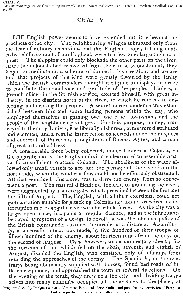 ―29― ―29―
CHAP. V.
THE English power seems to have extended but little beyond the
precincts of the city. The neighbouring villages submitted only from
the fear of military execution, and the English troops, til augment-
ed by reinforcements from England, were too few to enlarge their con-
quest. The shipping could only blockade the other ports on the river.
After the colonists had recovered from their first astonishment, they
began to meditate on a scheme of domestic insurrection, and we are
told that projects of this kind were greatly favoured by the lenity
which the British commanders though it eligible to display, in order
to conciliate the confidence and gratitude of the people. Liniers, a
French officer in the Spanish service, exerted himself, with great in-
dustry, in the districts north of the river, to which he retired, in col-
lecting and arming the people. A secret correspondence was estab-
lished between him and some leading persons within the city, who
employed themselves in gaining over the other townsmen, and the
people of the neighbouring villages. For this purpose, money, con-
veyed to them by Liniers, was liberally disbursed, arms were distributed
and secreted, and a regular insurrection concerted, under the auspices
and controul of Puiredon, a magistrate of Buenos Ayres, and a man
of great art and address.
A considerable force being collected, under Liniers at Colonia, on
the opposite shore, the English admiral endeavoured to assemble a na-
val force sufficient to attack Colonia. The shoaliness of the water al-
lowed only small vessels to act, and the passage of the river from the
north side, when the wind was fair, could not be effectualy obstructed.
All that remained, therefore, was to drive the enemy from so conve-
nient a post. The natural difficulties, incident to mounting the river,
were augmented by a severe gale, which prevailed between the first and
the fifth of August. The English, with all their exertions, could not
gain a station suitable for attacking Colonia, and Liniers received no in-
terruption in crossing the river with his whole force. As the city was a
large, open place, incapable of regular defence, and as the inhabitants
betrayed symptoms of a design of revolt, it was the obvious policy of
the British commanders to meet the invader at a distance. According-
ly, a successful attack was made, by five hundred of their troops, on
fifteen hundred of the enemy, about fourteen miles from the city, on
the second of August. This, however, was a momentary check; for
the torrents of rain which fell on the sixth, seventh, and eighth of
August, disabled the English, who consisted only of infantry, from
retarding the approaches of the enemy. The Spaniards, on the con-
trary, being abundantly supplied with horses, found bad roads of lit-
tle consequence, and approached the town in several directions. On
the evening of the tenth, they drew near the city, and, dividing them-
selves into many columns, occupied all the avenues to the place; at
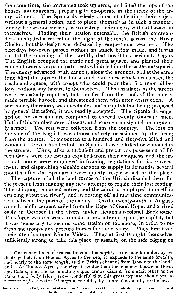 ―30― ―30―
the same time, the townsmen took up arms, and filled the tops of the
houses and churches, preparing to co-operate in the attack of the ar-
my without. The Spaniards wisely aimed at effecting their object
without a general action, and to place themselves in such a manner,
among houses and streets, as to destroy their enemy without hazard to
themselves. Finding their station untenable, the British comman-
ders meditated a retreat on the night of the tenth, across the River
Chello; but this design was defeated by tempestuous weather. The
next day, however, passed without an attack being made, and it was
not till the morning of the twelfth, the hostilities seriously began.
The English occupied the castle and great square, and planted their
cannon towards the principal streets which led into the castle and square.
The enemy advanced, with cannon, along the avenues, and at the same
time filled the tops of the houses and churches, which overlooked the
castle and square, with troops who could pour their fire upon all be-
low, without any hazard to themselves. The assailants in the streets
were repeatedly repulsed, but the fire from the roofs of the houses
made terrible havock, and threatened them with utter destruction. A
surrender, therefore, was inevitable, and a capitulation being proposed
by general Beresford, it was readily accepted. The Spaniards enga-
ged on this occasion are computed to exceed twenty thousand men.
Half of this number were citizens, and were variously and incomplete-
ly armed. The rest were collected from the country. The loss on
the side of the English was almost entirely occasioned by the firing
from the houses. It amounted to a hundred and sixty-five killed and
wounded. Seven hundred of the Spaniards were killed or wounded in
the streets. Thus, after a turbulent and precarious possession of fif-
teen days, were the British expelled from their conquest, and the na-
tion at home were employed in framing regulations for its govern-
ment, and dispatching valuable cargoes to supply its demands, several
months after the Spaniards were quietly re-possessed of the place.
The capture of all the land forces of the British disabled them for
the present from making any new attempt to regain their lost footing.
The shipping remained entire, and the admiral employed himself in
cruizing about the river*, and in cutting off all maritime communica-
tion between the ports of the enemy. On the twenty-ninth of August,
a small reinforcement sailed from the Cape of Good Hope, and arrived
early in October in the river, under lieutenant-colonel Backhouse.
This force was too weak to make a new attempt upon the capital, but
it was necessary to secure some station on the shore, in order to re-
fresh the troops, and procure horses for the cavalry. They first fixed
their attention upon Monte Video. They at first thought themselves
sufficiently strong to take this place by assault, on the side edging on
* Our conceptions of transactions in this mighty river may be aided by re-
flecting that, from Buenos Ayres to the sea, it expands to the same breadth,
and nearly to the same length, as the British channel from Dover to the land's
end. At Buenos Ayres, the river is wider than the channel between Dover
and Calais, and the terminating capes are as distant from each other as the
Ushant and Scily Isles. How wonderful that this great expanse should yet be
a current of fresh water, though accessible, by so broad a mouth, to the sea.
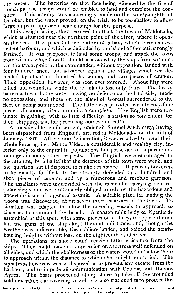 ―31― ―31―
the water. The batteries on that face being silenced by the fire of
the ships, the troops would be enabled to land and complete the con-
quest. This attempt was accordingly made on the twenty-eighth of
October, but the water proved, on the trial, to be too shallow to allow
large ships to approach near enough for this purpose.
This design failing, they resolved to attack the town of Maldonado,
which is situated near the northern point of the river, where it opens
on the sea. It is placed at the bottom of a bay, which forms an ex-
cellent harbour, and which is defended by the island of Goretti, strongly
fortified. It was proposed to land some troops, and attack the town
from within, while Goretti should be assailed by the ships from without.
On the twenty-ninth, the commander, without opposition, landed with
four hundred men, and advanced against the village, which was de-
fended by about six hundred horsemen, and two pieces of cannon.
Their opposition, however, was soon overpowered. About fifty were
killed and wounded, while the assailants lost only four. The heavy
batteries towards the water having no defence on the land side, made
no opposition, and those on the island of Goretti surrendered to the
fleet on being summoned. The latter was provided with twenty-four
pieces of cannon, with ammunition complete. The English were for-
tunate in gaining, with so little difficulty, a station so convenient for
their shipping, and for procuring horses and cattle.
A considerable reinforcement, under sir Samuel Auchmuty, having
been dispatched from England, arrived at Maldonado, on the fifth of
January, 1807. After some deliberation, it was resolved to bend their
whole force against Monte Video, a considerable and wealthy city, in-
ferior only to the capital in population, but possessed of superior ad-
vantages in many other respects. The English were encouraged to
the attempt, by a belief that the defences of this town were weak, and
the garrison but ill disposed to make resistance. It proved, however,
to be exactly fortified, to be strongly defended by a hundred and
sixty pieces of cannon, and by a numerous and resolute garrison.
The assailants were unprovided with the means for carrying on a re-
gular siege, and were ultimately obliged to rely on the hazardous and
uncertain issue of a general assault. A suitable place for landing the
troops was discovered, about seven miles eastward of the town. Its
situation was adapted to allow the covering vessels to approach so
close as to command the beach. A considerable body of Spaniards
assembled at this spot, with some pieces of artillery, to oppose them;
but the guns of the ships kept them at a distance, and, though the
weather was unfavourable, the soldiers landed, and gained the neigh-
bouring heights without loss, on the eighteenth of October.
The operations on shore could receive little assistance from the
ships. They could make no impression on a fortress well defended on
all sides, and which the shallowness of the water, would not allow them
to approach within the distance to which shot might be carried. The
squadron, however, was so disposed as to prevent any escape from the
harbour, and to impede all communication with Colonia and Buenos
Ayres. The boats proceeded along shore to take off the wounded
soldiers, while the covering vessels were so stationed as to protect this
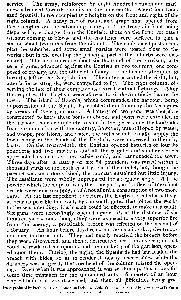 ―32― ―32―
service. The army, reinforced by eight hundred seamen and mari-
ners, advanced towards the city on the nineteenth. About four thou-
sand Spanish horse occupied two heights on the front and right of the
right column. A heavy fire of round and grape shot opened from
these heights on the advancing army; but the troops in front being
dispersed by a charge from the English, those on the flank retreated
without coming to blows, and the assailants were suffered to gain a
station about two miles from the citadel. Their advanced posts occu-
pied the suburbs, and some small parties were posted close to the
works; but in the evening the principal part of the suburbs were eva-
cuated. The next morning about six thousand of the garrison, with
several guns, advanced against the English in two columns, one com-
posed of cavalry, and the other of infantry. The former attempted to
turn the left of the English line. The latter assaulted the right, but,
after a fierce struggle, were compelled to fly. The right column, ob-
serving the fate of their companions, retired without fighting. After
this repulse, the English were allowed to sit down quietly before the
town. The island of Ratonis, which commanded the harbour, being
in possession of the Spaniards, enabled them to annoy the besiegers,
by means of their gun boats. A battery of two guns was therefore
constructed to keep these boats in check, and posts were extended to
the harbour, so as completely to shut in the garrison on the land side.
Its communication with the country, however, was still open by water,
and troops, provisions, and water, the wells which usually supply the
town being in the hands of the English, were conveyed to them by
boats. On the twenty-fifth, the English opened batteries of four 24
pounders, and two mortars, and all the frigates and smaller vessels
approached as near as they safely could, and cannonaded the town.
Three days after, a battery of six 24 pounders, was raised within a
thousand yards of the south east bastion of the citadel, but, though the
parapet was soon demolished, the rampart sustained but little injury.
The assailants were wholly unprepared for a regular siege. All the
powder which the ships of war, the transports, and a fleet of merchant
vessels were able to supply, could not afford a consumption of two more
days. As the late expedient, therefore, the English erected a battery,
as near as possible to a wall, by the south gate, that joined the works
to the sea, intending, if a breach could be effected, to make an assault.
Six guns were accordingly opened against it, at the distance of six
hundred yards, and, though they were exposed to a very superior fire
from the enemy, a practicable breach was effected on the second of
February. An hour before day-break, on the ensuing day, the troops
marched to the assault. They had nearly reached the breach before
they were discovered, and then a destructive fire from every gun that
could be made to bear upon it, and the musketry of the garrison, open-
ed upon them. During the night, the Spaniards had barricaded the
breach with hides, so as to render it nearly inaccessible, while the
darkness was so great, that the head of the column missed the open-
ing. Even when it was approached, it was so shut up, that it was for
some time mistaken for the untouched wall. A quarter of an hour
elapsed before it was discerned, and then, all difficulties being gra-
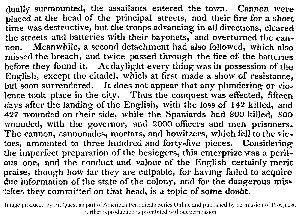 ―33― ―33―
dually surmounted, the assailants entered the town. Cannon were
placed at the head of the principal streets, and their fire for a short
time was destructive, but the troops advancing in all directions, cleared
the streets and batteries with their bayonets, and overturned the can-
non. Meanwhile, a second detachment had also followed, which also
missed the breach, and twice passed through the fire of the batteries
before they found it. At daylight every thing was in possession of the
English, except the citadel, which at first made a show of resistance,
but soon surrendered. It does not appear that any plundering or vio-
lence took place in the city. Thus the conquest was effected, fifteen
days after the landing of the English, with the loss of 142 killed, and
427 wounded on their side, while the Spaniards had 800 killed, 500
wounded, with the governor, and 2000 officers and men prisoners.
The cannon, cannonades, mortars, and howitzers, which fell to the vic-
tors, amounted to three hundred and forty-five pieces. Considering
the imperfect preparation of the besiegers, this enterprize was a peril-
ous one, and the conduct and valour of the English certainly merit
praise, though how far they are culpable, for having failed to acquire
due information of the state of the colony, and for the dangerous mis-
takes they committed on that head, is a topic of some doubt.
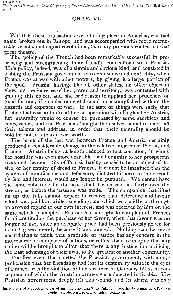 ―34― ―34―
CHAP. VI.
WHILE these transactions were taking place in America, war had
again broken out in Europe, and was accompanied with more memo-
rable events, and signal revolutions, than any previous contest on that
great theatre.
The policy of the French had been remarkably successful in pre-
serving and strengthening their friendly connections with Prussia.
This policy, indeed, was of a simple and obvious kind, and consisted in
bribing the Prussian government into connivance and neutrality, when
France was at war with other powers, by giving it a large portion of
the spoil. Prussia, having, like all other states, no other object in
view, but the increase of her power and territory, was contented with
gaining this object, and she had reason to applaud her prudence, or
good fortune, if this desirable end could be accomplished without the
hazards and expences of war. If the state of things were such, that
France had reason to dread her co-operation with England or Austria,
her neutrality would of course be purchased by some sacrifices and
concessions, and the Prussians thought themselves bound to exert all
their talents and address, in order that their neutrality should be
sold for not less than it was worth.
The issue of the last war between France and Austria certainly
produced a considerable change in the relative situation of Prussia and
France. Austria being at length reduced to that condition, in which
her hostility was even more desirable than her amity to her prosperous
rival, and the neutrality of Prussia having ceased to be an object of de-
sire, or her enmity of dread to France, it cannot be imagined that the
system of munificence and deference, dictated hitherto to the French
by fear and interest, would any longer be pursued. We cannot have
the same solicitude for the boat which has carried us fairly over the
stream, as before the passage was made. The companion that lifted
us up the hill, cannot expect to receive that deference and favour
which was paid him while ascending, and which was paid by us through
an avowed regard to our own interest, and was received by him on the
same selfish principle. Prussia had no right to complain of France,
for discontinuing the purchase of her favour, when that favour was no
longer of use, since an adequate price had been previously given for
it, and given merely because it was wanted. Nothing can be more
absurd than to think that gratitude or justice has any concern in the
intercourse or compacts of nations, or rather than to imagine that any
nation will be brought to allow that there is any justice in sacrificing
the least advantage of their own, to the greatest of another community.
The first event that startled the Prussian government, with an ap-
prehension that her friendship had lost its customary value in the eyes
of France, was the violation of her territory in October, 1805, in con-
sequence of which the Austrian armies were defeated in Suabia. The
Prussian government deeply felt this wound, and its alarm was only
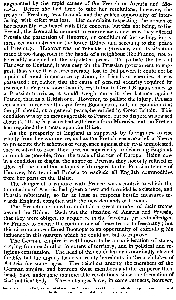 ―35― ―35―
augmented by the rapid career of the French in Austria and Mo-
ravia. Before she had time to take her resolutions, however, the
treaty of Presburg was formed, and the golden opportunity of inter-
fering with effect was lost. Her complaint respecting the breach of
her neutrality was heard with little concern, but this not being, to the
French, the favourable moment to commence a new war, they offered
Prussia the possession of Hanover, on condition of her ceding, in re-
turn, certain districts on the lower Rhine, and acceding to the peace
of Presburg. Hanover was too valuable a province, and its situation
made it too dangerous in the hands of a neighbour like France, not to
be readily accepted at the stipulated price. To palliate the loss of
Hanover to England, it was easy for the Prussian government to sug-
gest, that, since it was irrecoverably lost to that power, it could not be
a point of much importance by whom, its friends or enemies, it was
possessed; or, rather, that the cause of general security required its
transfer to Prussia, more than its restitution to Great Britain, since, as
a Prussian province, it would weigh more in the balance against
France, than as a British one. However, to palliate the injury, Prussia
consented to receive this gift from Buonaparte, only on condition that
the gift should, on a general peace, be ratified by Great Britain. This
condition was by no means agreable to France, but no dispute was raised
about it, till the Russians had withdrawn from Moravia, and the French
had regained their posts upon the Rhine.
As the prosperity of England is supposed, by foreigners, to rise
wholly from her commerce, and as the French were now left at liberty
to prosecute their schemes of vengeance against their rival unmolested,
they resolved to exert their present superiority in debarring England,
as much as possible, from the trade of the rest of Europe. Being now
in a condition to dispise the anger of Prussia, they not only refused to
allow of the condition adopted with regard to the Prussian tenure of
Hanover, but required Prussia to exclude all English commodities
from her ports on the Baltic.
The danger of a rupture with France was a motive to which the
humiliation of Austria had given a new and formidable existence, and
Prussia reluctantly, so far at least as respects hostile measures to-
wards England, complied with the new demands of France.
The French continued to maintain a great number of their troops
beyond the Rhine. Such was the situation of Austria and Prussia,
that they were obliged to acquiesce in the frivolous pretexts alledged
by France, to excuse the continuance of these troops in Germany; but
this circumstance offered Buonoparte an opportunity of extending his
influence in this quarter, which he could not fail to improve.
The German empire is well known to be a confederation of states,
varying from each other in extent of territory, and in political and re-
ligious constitution. The head of this confederacy is nominally elected
for life, but the dignity has been really hereditary in the archdukes of
Austria for some ages. The relations among the members of the
German empire, and between these members and the emperor their
head, have undergone innumerable revolutions since the formation of
that political body. These changes have, in some respects, however,
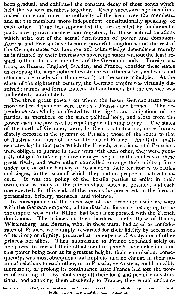 ―36― ―36―
been gradual, and exhibited the constant decay of those bonds which
held the various members together. Every successive age has dimi-
nished more and more the authority of the head over the members,
and set the members more independent, constitutionally speaking, of
each other. Time has superseded the ties created by fundamental
pacts now grown obsolete and nugatory, by those natural relations
which arise out of the actual distribution of power and dominion.
Austria and Prussia have become powerful kingdoms, and the rest of
the German states pay homage and acknowledge dependence merely
as is dictated by their interests as sovereign states without the least re-
gard to their duties as members of the Germanic body. Foreign na-
tions, as Russia, England, Sweden, and France, consider these states
as enjoying the same political existence with themselves, and wars and
alliances are made with them exactly on the same principle. At the
close of the eighteenth century, the German empire was virtually dis-
solved; names and forms, indeed, still continued, but the essence was
undoubtedly annihilated.
The three great powers on whom the lesser German states were
more or less dependent were Austria, Prussia, and France. This de-
pendence was wholly unaffected by the rights and obligations of the
parties, as members of the same political body, and arose from the
power each one possessed of repelling or inflicting injury. The states
of the north of Germany were, by their local situation, more imme-
diately exposed to the tyranny of Prussia; those of the south to that
of Austria, and those of the west to that of France. As all the small-
er states lay in that path which the French, Austrians, and Prussians
were obliged to pursue in their wars with each other, they were gene-
rally obliged to take a positive or negative part in the contests of these
great rivals, and were either compelled to range their military force
under one or other banner, or to abandon their territories to battles
and sieges, in the issue of which they had no proper or natural con-
cern. It was the policy of the hostile parties to enlist in their
own cause as many of the intermediate states as possible, and each
one exerted, for this end, all the means he possessed, in the form of
persuasion, bribery, menaces, and violence.
In consequence of the successes of the French in their late wars
with the German emperor, all the districts, formerly belonging to the
the empire west of the Rhine, had been incorporated with the French
dominions. The princes on their borders, chiefly those of Baden,
Wirtemburg, and Bavaria, who, in these wars, had acted as confede-
rates of France, were amply rewarded for their fidelity by accessions
of territory or dignity, procured at the expense of Austria or of other
princes, her allies. Their submission to France depended solely on
her power to reward their attachment or punish their defection, and
this power being now at its greatest height, their submission, conse-
quently, was most obsequious and implicit, and no change in their no-
minal relations to each other, or to Prussia, or Austria, could possibly
increase it, or prolong its continuance after France had lost the pow-
er of exacting it. By abolishing all their local and peculiar constitu-
tions, and annexing them absolutely to France, they would undoubt-
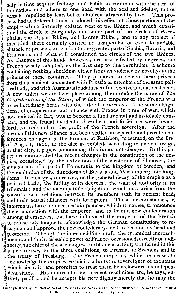 ―37― ―37―
edly in time acquire feelings and habits in common with the rest of
the nation, and adhere to one head with the zeal and fidelity, not of
vassals impelled by fear, but of children attracted by love. This pro-
cess had at different times produced this effect on those portions of the
empire which formerly existed west of the Rhine, and which consti-
tuted the circle of Burgundy, and some part of the circles of West-
phalia, the Upper Rhine, and Lower Rhine; and to any project of
this kind there certainly existed no insuperable or even formidable
obstacle at present, in relation to the greater part of Suabia, Bavaria, and
Franconia, and what still constituted the circles of the two Rhines.
As changes of this kind, however, are best effected by degrees, the
French wisely adopted, as the first step to this revolution, a scheme
containing nothing shocking, either from its violence or novelty, to the
princes of these countries. They proposed to detach these princes
from their ancient connection with Prussia as members of the same poli-
tical body, and with Austria as feudatories of an elective and national head.
A new union was to take place among them under the name of The
Confederation of the Rhine, of which the emperor of the French was
to be hereditary head, with the title of Protector. The same obliga-
tions, of co-operation and alliance with France in time of war, which
now existed in fact, was to become a fundamental and inviolable com-
pact, and the feudal incidents of escheat and forfeiture were hence-
forth to redound to the profit of the French sovereign. After the
terms of this new alliance had been settled in separate and private con-
ferences, the agent of the French, at Ratisbon, presented, on the first
of August, 1806, to the diet assembled, according to ancient usage,
in that city, a paper, announcing this important change. In this pa-
per are enumerated the recent changes in the constitution of the em-
pire, occasioned by the extinction of the electorate of Hanover, the
annexation of a part of Pomerania to the kingdom of Sweden, and
the exaltation of the dukedoms of Bavaria and Wirtemberg into king-
doms. It enlarges, moreover, on the general decay of the empire as a
political body; the futility of its decrees; the want of authority in its
tribunals; and the incompatible obligations which may arise from the
constitutional relations between its members with its ancient head,
and their actual alliances with foreigners. These circumstances, it
informs us, have induced certain princes, which it names, to renounce
their connection with the emperor, and to form a new confederation
among themselves, and have influenced the emperor of the French
to refuse any longer to acknowledge the German constitution, to re-
cognize and approve the new confederacy, and to become its head and
protector. Though the intermeddling craft, the tyrannical incroach-
ments, and the irresistable power of France, occasioned, directly or indi-
rectly, the chief of these changes, the blame is artfully tranferred in this
paper to time, to the three coallitions, to Prussia, to Sweden, and to
the treaty of Presburg. The French emperor, while he ceases to
acknowledge the empire, explicity admits the sovereignty of the states
which form it, and promises to treat them henceforward as indepen-
dent states. His motives for his present resolutions are, he says, en-
tirely pacific, and he accepts his new dignity merely that he may the
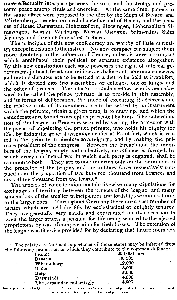 ―38― ―38―
more effectually interpose between the weak and the strong, and pre-
serve peace among rivals and enemies. At the same time, papers to
the same effect were proposed to the diet by the kings of Bavaria and
Wirtemberg, the electors archchancellor and of Baden, and the prin-
ces of Hesse Darmstadt, Hohenzollern, Hecsingen, Hohenzollern Si-
maringen, Nassau Wielburg, Nassau Usingen, Salm-salm, Salm
Kyburg, and three or four other princes.
The principles of this new confederacy are worthy of little curiosi-
ty, except in relation to themslves. No new compact can subject them
more absolutely to the influence of France, unless it were a compact
which annihilated their political or separate existence altogether.
By this new constitution each state possesses the right of internal go-
vernment, judicial, fiscal, and military, as before; all common concerns,
and mutual disputes are to be settled at a diet to be held at Frankfort,
which is divided into two assemblies or colleges, one of kings, and
the other of princes. The elector archchancellor, who is hencefor-
ward to be called the prince primate, is to preside in this assembly,
and its forms of deliberation, the mode of executing its decrees, and
the relative rank of its members, are to be settled by an instrument
which the primate, within a given time, is to draw up, and which the
confederates are bound to accept as presented by him. The subordina-
tion of the league to France is secured by vesting the protector with
the power of appointing the prince primate, who holds his dignity for
life; by fixing the general assembly or diet at Frankfort, which is ves-
ted in the primate in absolute sovereignty; and by making the pri-
mate president of the congress. Between the French and the mem-
bers of the league, singly and collectively, an alliance is formed, by
which every continental war in which each party is engaged, shall be
common to both. They are to take up arms only on the summons of
the protector of the league, and the military force respectively sup-
plied is in the proportion of two hundred thousand from France, and
sixty-three thousand from the league*.
The articles of confederation contain likewise many stipulations for
exchanges of territory between the princes of the league, and many
annexations of the smaller principalities and lordships within its limits
to the larger ones. Throughout Germany there are a vast number of
estates which are held for life, by ecclesiastical or knightly tenures.
They are generally very small, and contributed on this occasion to
swell the larger states, a pension for life being secured to the ejected
proprietors, by way of compensation for their losses. The extention of
the league was likewise provided for by declaring that future members
* The relative extent and importance of these states may be inferred from
the following proportion in which they contribute to the common defence:
| France |
200,000 |
men |
| Bavaria |
30,000 |
|
| Wirtemberg |
12,000 |
|
| Baden |
8,000 |
|
| Berg |
5,000 |
|
| Darmstadt |
4,000 |
|
| The remainder collectively |
4,000 |
|
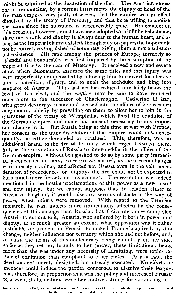 ―39― ―39―
might be admitted at the discretion of the diet. The Austrian empe-
ror in renouncing, by a formal instrument, the dignity of head of the
German empire, very justly observes, that the empire was in effect
dissolved by the treaty of Presburg, and that he is willing to abolish
the name since the substance is irrecoverably gone. His conduct on
this occasion, however, must have been adopted with infinite reluctance,
since mere rank and dignity is always dear to the human heart, and as
long as the imperial claims existed, though only on paper, the hope could
not be entirely extinguished of some day giving them a more substan-
tial existence. His rank among the princes of Europe, formerly so
splendid and honourable, was first impaired by the assumption of the
imperial title by the czar of Muscovy. It received a new and severe
blow, when Buonaparte assumed the same title, and this injury was
very imperfectly compensated by allowing him to convert his elective
into a hereditary dignity, and to exalt the archduke and king into
emperor of Austria. This last act has reduced him fairly below the
level of his rival, and the empire may be said to have returned
once more to the successor of Charlemagne. Catherine II had,
with great dexterity, insinuated herself into the affairs of her western
neighbours, chiefly by prevailing on them to allow her to join in the
guarantee of the treaty of Westphalia, which fixed the condition of
the German empire, and made her consent necessary to any impor-
tant change in it. But Russia being at this time at war with France,
her consent to the utter dissolution of that empire could not, conse-
quently, be either demanded or obtained. This, therefore, was an
additional brand to the fire of hostility which raged between them.
Yet, as the pretentions of Russia to intermeddle in the affairs of the
German empire, without being asked to do so by some party immedi-
ately concerned in them, were grossly absurd, as the present changes
were merely nominal, and affected not Russia even in the vain consi-
deration of precedence, or dignity, the fire could not be expected to
burn much more fiercely on this account. The revolution was indeed
mentioned in the hostile proclamations of this power as a new insult
and new injury, but we cannot suppose, that, in relation either to
Russia or England, it would raise any serious obstacle in the way of
peace, when others were removed. With regard to the Prussian
monarch, he was, indeed, more immediately affected by the conse-
quences of this change than Russia; but if circumstances compelled
Austria to submit to it, Austria, who suffered by it both in power and
dignity, to so much greater an extent, what opposition was it either
justifiable or prudent in Prussia to make? France acquired, by this
change, neither influence nor territory which she had not before, and,
in truth, the terms of this confederacy being voluntary on her side,
so far as they set any bounds to her power, these limitations, being
more than she was under any necessity of admitting, were topics ra-
ther of exultation than complaint to other states. At any rate, the
deed was not merely designed, but already executed. No efforts or
menaces could induce the parties concerned to dissolve their league,
and, therefore, in proportion as it was the policy and interest of Prussia
to prevent its formation, were her motives strong for submitting to it
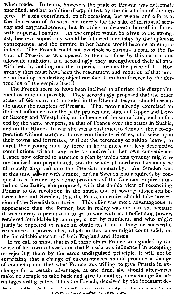 ―40― ―40―
when made. In truth, however, the pride of Prussia was extremely
mortified, and her ambition disappointed, by the dissolution of the em-
pire. Prussia contributed, on all occasions, her wishes and efforts to
the depression of Austria, not merely for the sake of territorial secu-
rity and aggrandizement, but in order to decorate herself in future
with imperial honours. As the empire would be given to the strong-
est, her own superiority would be followed inevitably by that splendid
consequence, and the empire in her hands would become an empire
indeed. The French could not overlook so obvious a road to the fa-
vour of Prussia as was opened to their artifices by this natural and
allowable ambition, and accordingly they strengthened their alliance
with her, by holding out the imperial crown as the price of it. How
greatly then must have been the resentment and vexation of that pow-
er on finding this darling object ravished from him forever by the des-
truction of the empire itself?
The French seem to have been inclined to alleviate this disappoint-
ment as much as possible. They accordingly proposed that the other
states of Germany not included in the Rhenish league should associ-
ate under the auspices of Prussia. That power already exercised an
indirect influence over the petty princes and states of Upper and Low-
er Saxony and Westphalia, an influence of the same kind, and enfor-
ced by the same weapons, as that of France over the states in Suabia,
and on the Rhine. In war she was accustomed to demand their co-op-
peration without scruple; to overrun their territories, and seize upon
their towns and fortresses, without the ceremony of asking leave; to
enroll their young men by force in her armies, and levy destructive
contributions without any rule or motive but her own convenience.
France now offered to sanction a plan by which this tyranny might be
methodized and perpetuated, and the whole of northern Germany be
ultimately absorbed into the Prussian monarchy. As Sweden was
at this time at war with France, and as Sweden had acquired, by con-
quest in a former age, some provinces of the German empire situa-
ted on the Baltic, she proposed, with the double view of reconciling
Prussia to the revolution in the south, and of sowing dissension be-
tween her and Sweden, that the Prussian armies should take posses-
sion of the Swedish territories. This offer was more advantageous in
appearance than the former, but in reality was far less so, because
it was merely a permission to go to war with an unoffending power,
rendered formidable by courage, if not by numbers, and who might
justly be expected to make an obstinate, if not a long or successful
resistance; a power, also, which in this cause might count safely on
the formidable succour of both England and Russia.
If we call to mind that in all these offers France was guided by the
sense of her own interest, and that Prussia was influenced in accepting
or rejecting them by the same undisguised principle, it will not be
surprizing that a change of circumstances should produce a change
of councils; and that what France was willing to give Prussia in ex-
change for a certain advantage, at one time, she should afterwards
make no scruple to take back and give to another, in exchange for ad-
vantages still greater. Thus the French, deceived by the incessant de-
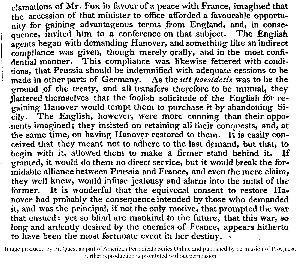 ―41― ―41―
clamations of Mr. Fox in favour of a peace with France, imagined that
the accession of that minister to office afforded a favourable opportu-
nity for gaining advantageous terms from England, and, in conse-
quence, invited him to a conference on that subject. The English
agents began with demanding Hanover, and something like an indirect
compliance was given, though merely orally, and in the most confi-
dential manner. This compliance was likewise fettered with condi-
tions, that Prussia should be indemnified with adequate cessions to be
made in other parts of Germany. As the uti possidetis was to be the
ground of the treaty, and all transfers therefore to be mutual, they
flattered themselves that the foolish solicitude of the English for re-
gaining Hanover would tempt them to purchase it by abandoning Si-
cily. The English, however, were more cunning than their oppo-
nents imagined; they insisted on retaining all their conquests, and, at
the same time, on having Hanover restored to them. It is easily con-
ceived that they meant not to adhere to the last demand, but that, to
begin with it, allowed them to make a firmer stand behind it. If
granted, it would do them no direct service, but it would break the for-
midable alliance between Prussia and France, and even the mere claim,
they well knew, would infuse jealousy and alarm into the mind of the
former. It is wonderful that the equivocal consent to restore Ha-
nover had probably the consequence intended by those who demanded
it, and was the principal, if not the only motive, that prompted the war
that ensued: yet so blind are mankind to the future, that this war, so
long and ardently desired by the enemies of France, appears hitherto
to have been the most fortunate event in her destiny.
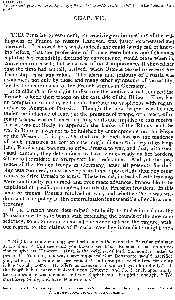 ―42― ―42―
CHAP. VII.
THE Prussian government, on receiving an intimation* of the wil-
lingness of France to restore Hanover, was justly exasperated and
alarmed. It showed her, what, indeed, she could hardly fail of know-
ing before, that the professions of France were hollow and fallacious,
and that her friendship, dictated by convenience, would cease when its
convenience ceased; but what was of most importance, it showed her
that the time had actually arrived, when France ceased to regard her
friendship as of any value. The alarm and jealousy of Prussia was
awakened, not only by those and many other symptoms of versatility,
but by the continuance of the French armies in Germany.
It is difficult at first sight to discover the motives which induced the
French to keep their troops on the east side of the Rhine. They had
no complaints to make, and could harbour no suspicions with regard
either to Austria or Prussia. Though the new league was formed
under the influence of fear, yet the presence of troops, or at least, of so
many troops, was not necessary to give its due impulse to this motive.
Russia was not likely to approach the banks of the Rhine, and the
war in Dalmatia was not to be finished by encampments on the Meyn
or the Weser. It is possible that the French foresaw the tendency
of such measures as convenience might dictate with regard to Eng-
land, Russia, and Sweden, to drive Prussia to war, and that, with their
usual caution, they determined to have armies ready on her borders,
either to intimidate or overpower her resistance. And yet the pre-
sence of the French troops in Germany, after all pretexts for their
stay was removed, must have operated more powerfully than any other
cause, to drive Prussia to arms. These troops, instead of withdrawing,
were continually reinforced, and even made advances, impossible to be
explained on pacific principles, towards the Prussian frontiers. In this
state of things, Prussia resolved on war, and whether there was wis-
dom and true policy in this determination is susceptible of endless con-
troversy.
If the French were determined gradually to make inroads on the
Prussian territory, to begin with extending the bounds of the new con-
federacy, so as to comprehend all the minor states of the empire, with-
out regard to the claims of Prussia over her immediate neighbours,
* Might not some cunning agent whisper in the ear of the Prussian minister
at London, — “You see what you have to trust to. Bonaparte has no objec-
tion to give us Hanover. Here is the original of lord Yarmouth's letter to
prove it. You might always have supposed that Bonaparte would sacrifice
you, when his convenience prescribed it, but now you see the time for doing
it has actually come. He offers us Hanover, if we will give him Sicily.” — If
the English had merely insisted upon Hanover, and the French upon Sicily,
the compromise was obvious, but the English said, haughtily enough, “We
must keep Sicily, and have Hanover too.”
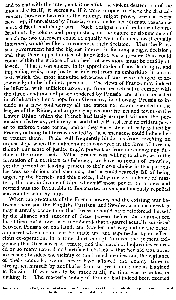 ―43― ―43―
and to end with the utter, and, if needful, the violent destruction of the
monarchy itself; it seems as if it were proper to check the first ad-
vances, however hazardous the attempt might prove, because every
new step, if unresisted by Prussia, would make her ultimate resistance
more difficult and dangerous. Such designs could be known before-
hand only by tokens and prognostics, on the nature or significance of
which no two observers could be equally well informed, or, if equally
informed, would be likely to concur in their decision. That the Prus-
sian government had the highest interest in forming a right decision;
and that their opportunities of knowledge were greater than could
come within the sphere of another's observation, must be readily al-
lowed. That it was sincere in its apprehension of hostile designs, and
impending evils, may justly be inferred from its embarking in a con-
test, which the most sanguine advocates of war were obliged to ac-
knowledge to be infinitely perilous. The views of France may indeed
be inferred with sufficient accuracy, from her refusal to comply with
the three conditions of peace tendered by Prussia, and which consisted
in withdrawing her troops from Germany, in allowing Prussia to in-
clude in a new confederacy all the states not comprehended in the
league of the Rhine, and in giving up certain districts and towns on the
Lower Rhine which the French had lately usurped without the per-
mission of a treaty, yet it may be said that as Prussia had no evident pow-
er to enforce these terms, and as they were steps already gained by
France, nothing but terror, excited by these menaces, could induce her
to retract them. Pride will frequently hinder us from revoking an
unjust step, when the inducement is conveyed in the form of threats,
though our sense of justice might prevent us from advancing any fur-
ther in the same road. What France was willing to allow, as to the
formation of a northern confederacy, we have no means of knowing,
yet the pretext of leaving princes to their own choice in that particu-
lar was so obvious and specious, that it could scarcely fail of being
urged by the French, and this choice, being merely a choice of mas-
ters, the bias in favour of him who had most power to protect and
reward was too favourable to Bonaparte, to be spontaneously repelled
and counteracted by him.
When the greatness of the French power, and the existing war be-
tween them and the English, Russians, and Swedes, are considered, it
may naturally occur to us that Prussia should have reinforced herself
by the alliance and succour of these powers before she commenced
hostilities: but it must be remembered, that a quarrel actually subsisted
between Prussia on one hand, and Sweden and England on the other,
a quarrel which could not be made up, and superseded by an effica-
cious co-operation, in a time short enough to meet the present exi-
gence; that Russia was so remote, and the march of her armies retard-
ed by so many natural and artificial obstacles, that her aid was never
in season; besides, the vicinity of the French armies, and the vigilance
of their councils, would never have allowed the enemy time to
strengthen himself by auxiliaries from so great a distance as England
or Russia. If war was to be made at all, no time was to be lost in
making it. The masterly policy of France had indeed been exerted
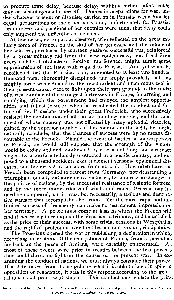 ―44― ―44―
to procure some delay, because delay, within a certain point, could
only be advantageous to herself. Domestic preparations for war, un-
der whatever pretext or disguise, carried on in Prussia, was a hint for
equal preparations on the other side, and, unfortunately for Prussia,
the numbers and positions of her enemies were such, that delay could
only augment the difficulties of defence.
At this crisis, an impartial observer, who reflected on the great mi-
litary force of France, on the skill of her generals, and the valour of
her soldiers, purchased by fourteen years of successful war, reinforced
by a great military aid from the new confederacy, and freed from
every collateral obstacle or foreign interference, might admit some
apprehension of the issue with regard to Prussia. And yet when he
recollected that the Prussian army amounted to at least two hundred
thousand men, thoroughly disciplined, and amply provided, that this
mighty force was actuated by the most ardent and unanimous zeal in
their present cause, were to fight upon their own ground, in the midst
of a vast number of the strongest fortresses in Europe, for arming and
supplying which the government had enjoyed the amplest opportu-
nities and fullest leisure; when he recollected the conduct and for-
tune of the Prussians under their great Frederick, who successively
resisted the combination of all the surrounding nations, and the con-
quest of whose country was not effected by many splendid victories,
gained by the superior numbers of his enemies in the field, he might
naturally conclude, that the chances of success were by no means fa-
vourable to the French. Should the event of battles be unprosperous
to Prussia, he would still suppose that the strength of the victors
would be exhausted and annihilated by a series of long and obstinate
sieges, by a warfare tediously protracted in a hostile country, and ex-
posed to a thousand accidents from inclement seasons, epidemical dis-
ceases, and the arrival of succours from abroad. How often have the
French been compelled to retreat from Germany, notwithstanding a
triumphant outset, and after many victories, by unforeseen changes in
the politics of nations; by the successful resistance of a single fortress,
and by the mere untowardness of winds and rains! Prussia may in-
deed be conquered, but it must be, necessarily, a tedious and destruc-
tive warfare that accomplishes her ruin. Yet the most rapid and un-
limited success of the enemy can make no permanent impression on
her territory. A peace must come at last, in which the French will
find it necessary to relinquish the Prussian patrimony, and be satisfied,
as the price of their success, with some trivial cessions in Westphalia,
and the right of protection over the Hessian and Saxon principalities.
The Prussians opened the war by publishing a declaration in which,
according to custom, all the usurpations of France, from a period as
far back as the peace of Amiens, were carefully enumerated. As
most of these events were prior to treaties between the two powers,
they could throw no light on the causes of the present war. In ex-
amining the conduct of nations, we must always consider their power.
If a state takes from its neighbour what it is able to keep in spite of
opposition or resistance, it acts in this respect according to the gene-
ral and usual practice of states. This conduct may violate the prin-
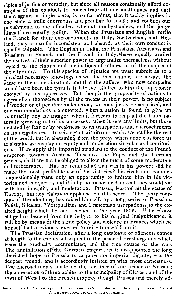 ―45― ―45―
ciples of justice or veracity, but since all nations continually afford ex-
amples of this conduct, to concentrate all our anathemas, and dart
them against a single state, is so far unjust, that it tacitly implies in
one state a guilt enormous, and peculiar to itself; and confines our
punishments to one offender, when all the bystanders, and the judge
himself are equally guilty. When the Prussians and English revile
the French for their encroachments in Italy, Switzerland, and Hol-
land, they are so far inconsistent and absurd, as their own conduct is
equally culpable. The English in India, the Prussians, Austrians, and
Russians in Poland, and the French in Italy, have equally availed
themselves of their superior power to aggrandize themselves, without
regard to the claims and inclinations of others, or of the subject of
their tyranny. To this species of injustice we must submit as to a
physical necessity, knowing, as we do, that nations are always the
same in the same situation, and that the sufferer who now complains
would have been the tyrant, if fate had allotted to him the superiority
enjoyed by his oppressor. But though the propensity of nations to
aggrandize themselves by all the means in their power, is no subject
of wonder or of peculiar malediction, we may justly be surprised, and
our commendations are extorted, when a nation is found to give up
voluntarily any advantage; when it forbears to reap all the fruits na-
turally growing out of its successes; when it sets any limits, but those
dictated by fear or by weakness, to its usurpations and encroachments
on its neighbours. In seizing all within our reach, we act like the rest
of the world, but in abstaining from the prey, when none can force us
to abstain, we display an equity and moderation singular and meritori-
ous. If we apply this impartial standard to the conduct of the French
emperor, towards Austria, Tuscany, the Pope, and the German
princes, shall we not be obliged to allow the merit of some moderation
and forbearance. Has he retained all that was in his power? did he
make the most profitable use of his victories? his rivals and enemies
unquestionably want only an opportunity to imitate him in his vic-
tories and conquests, and it is by no means certain that they would vie
with him in equity and moderation. Prussia, least of all the states of
Europe, has any claims to applause on this score. The petty mar-
quis of Brandenburg has raised himself, by a long series of Prussian,
Polish, Silesian, Westphalian, and Franconian usurpations, to the ex-
alted height which he had reached in the year 1806. If he is now
obliged to descend from this height, to his original insignificance, it
will be by means of the same policy and violence in France, which he
himself had previously exerted to raise himself from it.
The Prussian declaration, after a long catalogue of offences, comes
at length to the events subsequent to the peace of Presburg, and which
were the gradually accumulated, and the true causes of the war.
The annihilation of the German empire, as it disappointed the long
cherished hope of Prussia to acquire the imperial dignity, was the
deepest wound, and is accordingly insisted on with most earnestness.
The encroachments made on the territory of the prince of Nassau;
the annexation of three abbies to the principality of Cleves; and of the
town of Wesel to the French empire, though Prussia had merely sti-
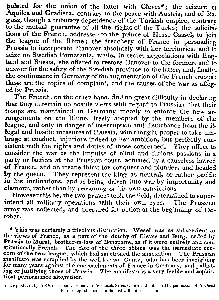 ―46― ―46―
pulated for the union of the latter with Cleves*; the seizure of
Aquilea and Gradisca, contrary to the peace with Austria, and of Ra-
gusa, though a tributary dependence of the Turkish empire, contrary
to the mutual guarantee of all the rights of the Turks; the solicita-
tions of the French, addressed to the prince of Hesse Cassel, to join
the league of the Rhine; the treachery of France in persuading
Prussia to incorporate Hanover absolutely with her territories, and to
seize on Swedish Pomerania, while, in secret negociations with Eng-
land and Russia, she offered to restore Hanover to the former, and to
answer for the safety of the Swedish province to the latter, and, finally,
the continuance in Germany of the augmentation of the French troops:
these are the topics of complaint, and the causes of the war as alleg-
ed by Prussia.
The French, on the other hand, find no great difficulty in declaring
that they entertain no hostile views with regard to Prussia; that their
troops are maintained in Germany merely to enforce the new ar-
rangements on the Rhine, freely adopted by the members of the
league, and only in danger of interruption and disturbance from the il-
legal and hostile measures of Prussia, who thought porper to take um-
brage at conduct, injurious indeed to her ambition, but perfectly con-
sistent with the rights and duties of those concerned. They affect to
consider the war as the impulse of blind and furious passions in a
party or faction at the Prussian court, actuated by a causeless hatred
of France, and an insane thirst for conquest and plunder, and headed
by the queen. They represent the king as neutral, or rather pacific
in his inclinations, and as being driven into war by importunity and
clamour, rather than by reasoning or his own convictions.
However this be, the two princes took the field, determined to super-
intend all military operations with their own eyes. The Prussian
army was collected, and prepared for action at the beginning of Oc-
tober.
* This was certainly a frivolous distinction. Wesel was as subservient to
the views of France, as a part of the dutchy of Cleves and Burg, ceded by
Prussia to Murat, brother-in-law of Bonaparte, as if it were entirely and con-
stitutionally French. The fate of the three abbies was the immediate con-
cern of the new league, which had sanctioned the annexation. The Prussian
manifesto was compiled by the well known Gentz, who has been inveighing
for many years against the encroachments of France in Germany, and palliat-
ing or justifying those of Prussia. The manifesto is a very feeble and sophis-
tical performance altogether.
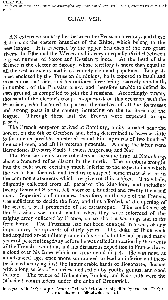 ―47― ―47―
CHAP. VIII.
AN extensive country lies between the Prussian territory, and those
districts on the eastern branches of the Rhine, which belong to the
new league. It is traversed by the upper branches of the two great
rivers, the Elbe and the Weser, and is very unequally divided between
a great number of Saxon and Hessian princes. At the head of the
former is the elector of Saxony, whose territory is more than equal to
all the rest in extent, and is extremely rich and populous. Being al-
most enclosed by the Prussian dominions, he is exposed to insult and
invasion on that side, and his military force being scarcely one-tenth,
in number, of the Prussian army, and therefore unable to defend its
own ground, is compelled to join the Prussians. Accordingly, twenty
thousand of the elector's troops co-operated, on this occasion, with the
Prussians, who hastened to possess themselves of all the fortresses
and strong posts in the country bordering on the territories of the
league. Through these last the French were expected to ap-
proach.
The French emperor arrived at Bamburg, a city situated near the
border, on the 6th of October, and, being determined to leave as little
to fortune as possible, mustered round him upwards of two hundred
thousand men, and all his veteran generals. Among the latter were
Bernadotte, Davoust, Soult, Lasnes, Augereau, and Ney.
The Prussian army were collected, at the same time, at Naumburg,
about a hundred miles distant in the north. The numbers brought
into the field were certainly much inferior to the expectations which
the world had formed, and lead us to suspect some material error in
the common statements which are given on this subject. The whole,
diligently collected from all parts of the kingdom, and including
twenty thousand Saxons, fell short of a hundred and twenty thousand
men. Superiority of numbers, therefore, on the side of the French,
was sufficient to decide the fray, and thus afforded, at the opening of
the scene, a fatal prognostic of the catastrophe. The confidence of
the Prussians was much abated when they were informed of the
mighty army collected by France, on so short a warning, and so far
from home. The Prussians had not been engaged in a war, of any
importance, for upwards of thirty years. The duke of Brunswick
had acquired great military fame in his youth, but he had passed many
years of peaceful inactivity before he was called into action by the events
of the French revolution, and his disastrous expedition to France threw
a cloud over his fame which no time could dispel. He was now, at
an advanced age, once more summoned to lead an inferior and inex-
perienced army against the innumerable bands of Bonaparte, flushed
with a long series of victories, and led on by youth, genius, and good
fortune. The prince of Hohenlohe, Ruchel, and Kalcreuth were the
principal commanders under the duke of Brunswick.
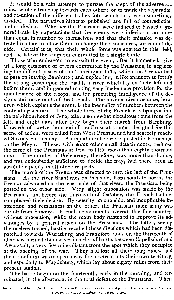 ―48― ―48―
It would be a vain attempt to pursue the steps of the adverse ar-
mies, while advancing towards each other; or to mark the separation
and re-union of the different bodies into which they were sometimes
divided. The narratives hitherto published are full of contradiction
and confusion. Whether the Prussians were induced to hazard a ge-
neral battle by expectations that the enemy were inferior or no more
than equal in number to themselves, and that their mistake was de-
tected too late to allow them to change their measures, we cannot de-
cide. Certain it is, that their whole force was exerted in this field,
and the fate of the kingdom committed to a single battle.
Those who endeavour to explain the event, after it happened, give
us a long catalogue of errors committed by the Prussians, in neglect-
ing the difficult passes of the Thuringian hills, which the French had
to pass on leaving Bamburg; and neglecting, in like manner, to fortify
the strong posts upon the Saahl, a river which lay on their left and
before them, and in general making very inadequate provision for the
maintenance of the troops, and for procuring intelligence of the de-
signs and movements of the French. The obvious circumstance, how-
ever, which explains the event, is the inequality of numbers between the
contending armies. The whole force of the French was brought into
the neighbourhood of Jena, after a somewhat circuitous route from the
left, and eight days after they began their march from Bamburg.
Upwards of twelve thousand of the Prussian troops, designed for this
scene of action, were called from West Prussia, and had scarcely reach-
ed Saxony on this day. An equal number were posted in Franconia,
on the Meyn. These, with some other small detachments, reduced
the force of the Prussians at Jena to little more than eighty thousand
men. The number of their army, therefore, was more than double,
and was undoubtedly sufficient to decide the fray, had there been an
absolute equality in all other respects.
The march of the French was directed to turn the left of the Prus-
sians. As the river Saahl ran, on this side, from south to north, the
French advanced on the east side of that river, the Prussians being
posted on the other side. Very slight opposition was made by the
Prussians, and before the thirteenth of October, the French had ac-
complished their design. By celerity on one side, and inexplicable in-
attention and remissness on the other, the Prussian main army was
cut off from Saxony. French detachments overran that fine country,
without opposition, while the main body hastened to improve its ad-
vantages by a general attack on the Prussians. The latter, seeing
themselves turned, hastily recalled these divisions which had been dis-
patched towards Wurtzburg and Frankfort, and, on the thirteenth of
October, formed themselves in order of battle, between Capellsdorf and
Awerstadt, a very few miles distant from the spot which they occupied
at the opening of the war. They had lost all their magazines, and
their chief aim was to open a way for a retreat into their own territory,
and especially to Magdeburg, which lay about eighty miles from their
present station.
The battle began on the fourteenth, early in the morning, and ter-
minated, in the afternoon, in the total defeat of the Prussians. Their
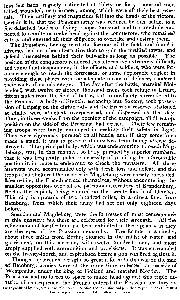 ―49― ―49―
loss has been vaguely estimated at thirty or forty thousand men
killed, wounded, or prisoners, among which were all their best gene-
rals. Their artillery and magazines fell into the hands of the victors.
Certain it is, that the Prussian army was reduced by this battle, to a
few detached bodies of flying troops, too small and too much discon-
nected to reunite or make head against the conquerors, who remained
entire, and exerted all their diligence to overtake and destroy them.
The Prussians, having tried the fortune of the field, and found it
adverse, had no other alternative than to gain the fortified towns, and
defend themselves behind their bulwarks as long as possible. The
position of the conquerors rendered this alternative extremely difficult,
and some fatal despondency in the officers and soldiers, who were for-
tunate enough to reach the fortresses, or some deplorable neglect in
providing these places with the adequate means of defence, rendered
their walls of no advantage. The day after the battle, marshal Mol-
lendorf, with twelve or sixteen thousand men, took refuge in Erfurt,
fifteen miles from the field of battle, but immediately surrendered to
the French. A body of French, advancing into Saxony, took posses-
sion of Leipsig on the eighteenth, and the Prussian reserve, stationed
at Halle, were attacked, overpowered, and dispersed on that day.
Thus, in three weeks from the opening of the campaign, all direct op-
position on the side of the Prussians had ceased. Their few remain-
ing troops were busily employed in seeking their safety in flight.
They were vigorously pursued on all hands, and, if they sometimes
made a stand, it was to prevent themselves from being utterly de-
stroyed. The principal body, which was endeavouring to reach Mag-
deburg, was, in this manner, so hotly pursued by superior numbers,
that it was frequently under a necessity of profiting by a favourable
position in its route to endeavour to check the pursuers. All these
attempts were accompanied only with fresh loss and defeat, and the
troops that sheltered themselves in Magdeburg were closely blockaded.
Meanwhile, the French spread themselves, without encountering the
smallest opposition, over all the patrimonial territory of Brandenburg,
Berlin, the capital, being entered on the twenty-fourth of October.
This city is upwards of two hundred miles, in a direct line, from
Bamburg, from which their army had set out only eighteen days
before.
Spandau and Magdeburg were the fortresses of most consequence
in this quarter; but these are celebrated for their strength. All the
refinements of fortification had been exhibited in these places, as they
are the eyes of the Prussian monarchy. The former is a citadel,
about three miles from Berlin, situated in the midst of water, and
garrisoned, on this occasion, with twelve hundred men, and most
amply supplied with ammunition and provisions. It was surrounded
on the twenty-fourth, and capitulated before a gun was fired against it.
Though the French brought so great a force to this war on the side
of Bamburg, armies were at the same time collected on the side of
Westphalia, under the king of Holland and marshal Mortier. The
Prussians had no forces to spare to make head against this triple at-
tack: of consequence, the French entered the Prussian territory on
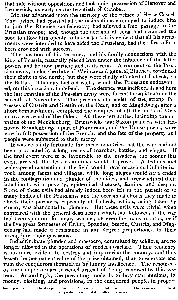 ―50― ―50―
that side without opposition, and took quiet possession of Hanover and
Brunswick, as early as the twentieth of October.
Mortier advanced upon the territory of the prince of Hesse Cassel.
This prince had resisted all the insinuations employed to induce him
to join the Rhenish confederacy; had allowed a free passage to the
Prussian troops; and, though the decision at Jena had occurred too
soon to allow him openly to take a part, it is evident that all his arma-
ments were intended to have aided the Prussians, had their first efforts
been crowned with success.
The position of his territory, and his family connections with the
king of Prussia, naturally placed him under the influence of the latter
power, and he now participated in its ruin. A remnant of the Prus-
sian army, under the duke of Weimar and general Blucher, continued
their flight to the north; but they were finally attacked at Lubeck, on
the Baltic. This city had old walls, which the Prussians endeavour-
ed, on this occasion, to defend. The defence was ineffectual, and here
the last remains of the Prussian army were forced to capitulate on the
seventh of November. The previous surrender of the strong for-
tresses of Custrin and Stettin on the Oder, and of Magdeburg, after a
short bombardment, completed the conquest of all the north of Ger-
many, westward of the Oder. All these territories, including the do-
mains of the Mecklenburg, Brunswick, and Saxon princes, with Ha-
nover, Brandenburg, a part of Pomerania, and the Hanse towns, were
now in full possession of the French, and the fate of the property and
people were subjected to their mercy.
It was certainly fortunate for these countries that the war had not
been protracted by a long series of marches, battles, and sieges. If
the final event were to be favourable to the invaders, the sooner this
event arrived, the less calamitous would it prove. A tedious and
wide-spread contention in the field would have occasioned infinite ha-
vock among farms and villages, while long sieges would have ended
in the conflagration and plunder of the cities, and overwhelmed their
inhabitants with poverty, epidemical diseases, famine, and despair.
Some of these evils had already indeed been felt in the pursuit of so
many bodies of the Prussians, and the occasional efforts they made to
check their pursuers, especially at Lubeck, which, being taken by
storm, was abandoned to plunder. But these evils were trivial when
compared with the general destruction which had followed, if the war
had been spun out for many seasons, or even for many months, or if
the five great fortresses of Erfurt, Spandau, Stettin, Custrin, and Mag-
deburg had made a resistance in any degree proportioned to their
strength or their garrisons.
Indiscriminate plunder and massacre, committed by soldiers, are no
longer allowed in the operations of modern warfare. Their tendency
is not more evident to destroy and impoverish the country, and thus
lessen the permanent value of the prize obtained, than to enervate and
ruin the conquerors themselves by luxury and licence. The resources
of the conquerors are lessened instead of being renewed by this sys-
tem. Accordingly, the prevailing mode is to levy contributions, in
money, clothing, and provisions, on the conquered people, in propor-
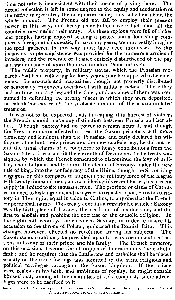 ―51― ―51―
tions not utterly inconsistent with their means of paying them. The
actual collection is left in some degree to the equity and moderation of
the native magistrates, the conquerors being only solicitous about the
whole amount. The French did not fail to employ their present
power in this way, and heavy contributions were laid upon all the
countries now under their sway. As these regions were full of riches
and people, having enjoyed so long a peace, and a flourishing com-
merce, foreign and domestic, for so many years, we may easily imagine
the spoil gathered in this way must have been immense. By this
means an ample subsistence was provided for the numerous armies of
invaders, and the revenue of France entirely disburthened of the pay
and maintenance of more than two hundred thousand men.
The public property, in military stores, which the Prussian mo-
narchs had been collecting for forty years, may be supposed to be enor-
mous. Its arsenals and magazines, though not properly distributed
or seasonably employed, overflowed with military riches. These they
had no time to carry beyond the Oder, and, as none of them was con-
sumed in defending the strong places in which they were deposited,
no calculation can reach the probable amount of these accumulated
treasures.
It was not to be expected that, in reaping this harvest of victory,
the French should make any distinction between Prussia and her al-
lies. Though Saxony had no power to remain neutral, and though
the French emperor affected to treat the Saxon prisoners with more
clemency and kindness than the Prussian, and early declared his wil-
lingness to admit their prince into the new confederacy, he did not re-
mit the usual claims of a conqueror to heavy contributions from the
Saxon states. It was not till the eleventh of December, that a treaty was
signed, by which the French consented to discontinue the levy of mili-
tary contributions; and to admit the elector of Saxony, under the new
title of king, into the confederacy of the Rhine, though the Saxon king
engages, by this compact, to augment the military force of the league
with twenty thousand men; but, considering his recent losses, his present
supply is. limited to six thousand men. The province or circle of Cathus
is annexed to his kingdom, and he agrees to transfer a portion of his terri-
tory in Thuringia, equal in value to Cathus, to any one that the French
emperor shall name. This treaty contains a remarkable article: Saxony
was the birth-place of Luther, the seed plot of his doctrine, and the
first to abolish and prohibit the exercise of the catholic religion. In
the eighteenth century, the elector of Saxony, in order to insure his
accession to the throne of Poland, embraced the Romish faith. This
change, however, effected no revolution among his subjects. The
Saxon states could only be prevailed upon to relax the ancient restric-
tions in favour of their prince and his family. The French emperor,
on this occasion, became the champion of toleration and the catholic
faith; and he requires that the Lutherans and catholics shall be placed
exactly on the same footing, and admitted to the same religious and
political privileges throughout the Saxon kingdom. If the prince
were zealous in his faith, and ambitious of royalty, he might console
himself that, among all the calamities of this conquest, some advan-
tages were to be ascribed to it.
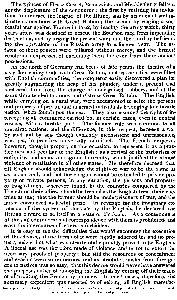 ―52― ―52―
The princes of Hesse Cassel, Brunswick, and Mecklenburg fell un-
der the displeasure of the conqueror; the first by resisting his invita-
tions to embrace the league of the Rhine, and by his ancient and in-
timate connections with Great Britain; the second by waging a suc-
cessful war against France in 1762, by leading the army which, thirty
years after, was destined to rescue the Bourbon race from impending
destruction, and by urging the present war; and the third by befriend-
ing the operations of the Russian army in a former year. The es-
tates of these princes were pillaged without mercy, and the firmest
resolutions expressed of excluding them for ever from their ancient
possessions.
As the north of Germany had been, of late years, the theatre of a
very flourishing trade with Great Britain, and as the cities were filled
with English commodities, the conqueror easily discovered a plan for
greatly augmenting the heap of his plunder, under a pretext that
sheltered him from the charge of undisguised robbery, and at the
same time tended to annoy and distress Great Britain. The English,
while carrying on a naval war, were accustomed to seize the persons
and property of private and unarmed individuals belonging to a hostile
nation, when found upon the sea. They also assumed the right of in-
tercepting all commerce carried on, in certain cases, even in neutral
vessels, with a hostile port. The former rule was common to all
maritime nations, and the difference, in this respect, between a war
by land and by sea, though evidently inconsistent and unreasonable,
was yet, in practice, universally admitted. The French emperor,
however, thought proper, on this occasion, to represent it as a prac-
tice new and peculiar to the English; as a revival of the barbarism of
antiquity, and as an outrage on humanity, which justified the utmost
violence of retaliation in all other states. He therefore decreed that,
till England should acknowledge the rights of war to be the same at
sea as on land, and that these rights cannot be extended to private pro-
perty or private persons, in any situation, the persons and property
of Englishmen, wherever found, in the countries conquered by the
French or their allies, should be treated as the English treat their ene-
mies at sea; that the former should be made prisoners of war, and the
latter considered as lawful prize. In revenge for the imaginary ex-
tension of the system of blockade by the English, he declared the
British empire to be itself in a state of blockade. As a consequence
of this, all commerce and correspondence with them is prohibited, and
even the intercourse of letters is forbidden,
It is easy to see the difficulties that would encounter the execution
of this decree, if the terms of it were rigidly adhered to, and no pro-
perty seized but what was clearly and equitably proved to be English.
A liberal use was therefore made of violence and terror to extort the
necessary proofs of property; but still the resources of concealment
and evasion were so numerous, and an absolute transfer from foreign-
ers to natives was so easy, that this decree would never have answered
the purpose, either of annoying the English by cutting off their trade,
or of profiting the French by plunder. In most cases, therefore, the
summary expedient was resorted to of seizing all English manufac-
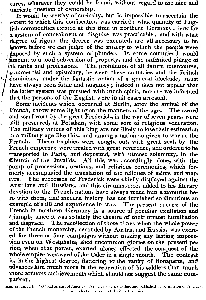 ―53― ―53―
tures, wherever they could be found, without regard to the nice and
intricate question of ownership.
It would be worthy of curiosity, but is impossible to ascertain the
extent to which this confiscation was carried; what quantity of Eng-
lish commodities existed at this time in northern Germany; how far
a system of concealment or disguise was practicable; and with what
degree of rigour the decree was executed, are all necessary to be
known before we can judge of the misery to which the people were
exposed by such a system of plunder. In some countries it would
amount to a total subversion of property, and the unlimited pillage of
all ranks and professions. The prohibition of all future intercourse,
commercial and epistolary, between these countries and the British
dominions, under the fantastic notion of a general blockade, must
have always been futile and nugatory; indeed it does not appear that
the latter system was pursued with much spirit, nor are we informed
that the persons of the English were in all cases arrested.
Some incidents which occurred at Berlin, after the arrival of the
French, throw some light upon the manners of the age. The sword
and scarf worn by the great Frederick, in the war of seven years, were
still preserved, at Potsdam, with some sort of religious veneration.
The military virtues of this king are not likely to lose their estimation
in a military age like this, and among a nation so given to war as the
French. These trophies were sought out, with great zeal, by the
French emperor; were treated with great reverence, and ordered to be
transported to Paris, and deposited, with utmost solemnity, in the
Church of the Invalids. All this was accordingly done, with the
pomp of processions, orations, and religious ceremonies, which for-
merly accompanied the translation of the reliques of saints and mar-
tyrs. The successes of Frederick were chiefly displayed against the
Austrians and Russians, and this circumstance, added to his literary
devotion to the French nation, have always made him a favourite he-
ro with them, and modern history has not furnished so illustrious an
example of skill and experience in war. The present success of the
French in northern Germany is a source of peculiar exultation and
triumph, since it was so lately the theatre of their utmost humiliation
and disgrace. The recollection of those times when the whole power
of the French monarchy, seconded by Austria and Russia, was exert-
ed for three or four campaigns without making any lasting impres-
sion even on Westphalia, shed uncommon glories on the present pe-
riod, when that power, exerted alone, effected the conquest of the
whole empire westward of the Oder in a single month. The contrast
is, in the highest degree, flattering to the vanity of Bonaparte, and
advances him much more in the veneration of his soldiers than much
more arduous atchievements which should not suggest the same com-
parison.
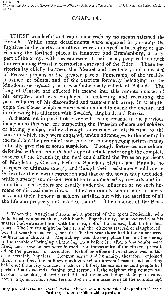 ―54― ―54―
CHAP. IX.
THESE wonderful and rapid successes by no means satisfied the
French. While some detachments were engaged in pursuing the
fugitives in the north, and others were employed in besieging or gar-
risoning the fortified places in Hanover and Brandenburg, a large
part of the army, with the emperor at their head, prepared to attack
the remaining Prussian territories eastward of the Oder. These ter-
ritories lay chiefly between the Memel and the Oder, and consisted
of Prussia proper, of the greater part of Pomerania, of the wealthy
province of Silesia, and of the districts formerly belonging to the
kingdom, or republic, as it was fantastically called, of Poland. The
king of Prussia had effected his escape into this remote quarter of
his empire: and was employed in collecting and recruiting the
poor remains of his discomfited and panic-struck army, in strength-
ening the places which seemed best qualified to check the enemy, and
in renewing his alliances with Sweden, England, and Russia.
A distant but impartial observer will see no reason, in the previous
incidents of this war, for suspecting the Prussian officers and soldiers
of having yielded, either through cowardice or disaffection to the
cause in which they were engaged, undue advantages to the enemy in
the field, but the precipitate surrender of so many strong fortresses may
naturally give rise to some suspicion. Though fortresses are seldom
defended without some distant hope of relief, and though the complete
success of the French in the field could afford the Prussian garrisons
of Magdeburg, Custrin, Erfurth, Spandau, Stettin, and Hameln no
prospect of ultimate safety; and though their resistance would mere-
ly involve their own destruction and that of the towns they defended,
while a speedy submission would be recompensed by rewards and im-
munities; yet soldiers are usually under the influence of no such hu-
mane or dispassionate views. They commonly submit only to neces-
sity, and their honour is seldom satisfied but with the sacrifice of all
the life and property entrusted to them*. The conduct of the Prus-
* When the Austrians threatened a general of the great Frederick, who
held Breslaw against them, with bombarding that city, he answered that his
master had entrusted him with the care, not of the houses, but the fortifica-
tions. The houses might be burnt, and the citizens starved or slaughtered:
but that was their concern, not his. In this war there had hitherto occurred
no instance of this kind. Magdeburg was the only place that put the enemy
to the trouble of bringing a battering train before it: after a few bombs were
fired, and a few houses were burned, the importunity of the citizens prevail-
ed on the garrison to surrender. Relief or effectual resistance was in this
case certainly hopeless. Common sense and humanity, therefore, enjoined
them to do thus. but military maxims teach a different lesson; and had they
held out till the city was laid in ashes; till forty thousand innocent people had
perished with wounds, famine, and terror; till the neighbouring country had
become a smoking desert; and till, all defences being at length beaten
down, a general storm had terminated in the massacre of all the soldiers and
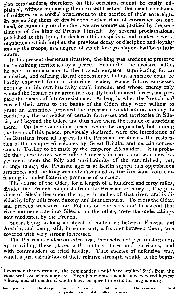 ―55― ―55―
sian commanders, therefore, on this occasion, cannot be easily ex-
plained, without supposing them to want either the usual constancy
of soldiers, or a cordial attachment to the service of their sovereign.
In suspecting them of disaffection rather than of cowardice, on one
hand, or humanity on the other, we are somewhat justified by the sen-
timents of the king of Prussia himself. By several proclamations,
published at this time, he declares this suspicion, and makes several
regulations which implies the previous decay of discipline and loyalty
among the troops, in a degree of which foreign nations had been little
aware.
In his present desperate situation, the king was anxious to preserve
his remaining territories by a peace. Soon after the decisive battle,
he sent an ambassador to the French emperor, supplicating for an
armistice, and offering liberal concessions; but an armistice could be
hardly expected from a victorious leader, whose future successes
nothing but his own inactivity could impede, and whose enemy only
wanted the leisure of an armistice to rally his dismayed forces, and pre-
pare the means of future resistance. At length, when the French had
carried their arms to the banks of the Oder, they were willing to
grant an armistice, provided the Prussians would admit, among its
conditions, the surrender of certain fortresses and territories in Sile-
sia, and beyond the Oder, and thus save them the trouble of attacking
them. On these conditions peace would be negociated, but among
the terms of this peace, previously declared, were the interdiction of
the Russians from all ingress to the Prussian territories, the restora-
tion of the conquered colonies by Great Britain, and certain conces-
sions to Turkey to be made by the emperor Alexander. It is proba-
ble that these terms were offered merely in sport, and as a new ex-
periment upon the folly and pusillanimity of the vanquished; yet,
strange to say, the Prussian agents at Berlin signed this opprobrious
armistice, and the king was only dissuaded by the Russians from con-
firming it, under flattering promises of succour.
The course of the Oder, for a length of a hundred and forty miles,
divided the French conquests from the Prussian territory. The pro-
vince of Silesia lies upon the upper branches of that river, and is di-
vided by lofty hills from Saxony and Brandenburg. To cross the Oder,
and proceed westward into Poland, on one side, and to ascend that
river and penetrate into Silesia, on the other, were the undertakings
now meditated by the French.
Silesia being so long an object of contention between Prussia and
Austria, and being still, in some sort, a frontier between them, was
covered with very strong fortresses.
The Prussians endeavoured to avail themselves of past misfortunes,
by providing these places with military stores and garrisons, and
with commanders of tried fidelity. That species of defensive war,
which a just calculation of their relative strength would, at the begin-
townsmen that remained, the commander would have stalked forth from the
ruins with conscious majesty. Even his enemies would have revered him for
a hero, and all mankind would have conspired to extol his magnanimity.
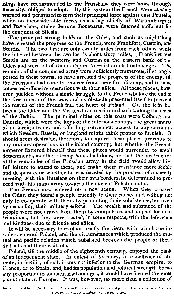 ―56― ―56―
ning, have recommended to the Prussians, they were now, through
necessity, obliged to adopt. By this system the French were at once
warned and permitted to turn their principal force against east Prussia,
while an inconsiderable force, consisting chiefly of Wirtemburgers
and Bavarians, under Jerome Bonaparte, were deemed sufficient for
the conquest of Silesia.
The principal strong holds on the Oder, and such as might long
have arrested the progress of the French, were Frankfort, Custrin, and
Stettin. The two first are only twenty miles from each other, while
the interval between the two last is about sixty miles. Frankfort and
Stettin are on the western, and Custrin on the eastern bank of the
Oder, and were all of them adapted to resist an obstinate siege. The
remains of the conquered army were sufficiently numerous, if strongly
posted in these towns, to have arrested the progress of the enemy, till
the Prussians had time to recover from their first dismay, and to have
concerted offensive operations with their allies. All these places, how-
ever, yielded without a single struggle to the French, before the end of
the lirst month of this war, and no obstacle presented itself to prevent
the march of the French into the heart of Poland. On the left, be-
tween the Oder and the Vistula, lay a maritime district, along the coast
of the Baltic. The principal cities on this coast were Colburg and
Dantzic, which were the keys of the interior country, the great marts
of its foreign trade, and affording convenient access to any succours
which Sweden, Russia, or England might think proper to furnish. It
should seem desirable, therefore, to acquire these places previous to
any military operations in the inland country; but whether the French
emperor flattered himself that these places would surrender to small
detachments, as other strong holds had done, or that the destruction
of the remainder of the Prussian army in the field would allow him
full leisure to attend to these, and make their resistance more feeble
and desperate, or whether he was dazzled by the prospect of a speedy
meeting with the Russians on their own borders, he determined to pro-
ceed with his main army towards the ancient Polish capital.
The French now entered on a new scene. When they crossed
the Oder, they found a people friendly to their cause, and willing not
only to co-operate with them, by promoting their subsistence, but even
by seconding their military efforts. The wealth and substance of the
people were not drawn from them by compulsory and unpaid for con-
tributions; but they were treated, in some respects, with the deference
and kindness due to friends and allies.
It will be necessary to explain briefly the views with which the in-
vaders entered Poland, and the circumstances which produced the mu-
tual and pacific relation which subsisted between the people of these
districts and their visitants.
Poland, till the middle of the eighteenth century, enjoyed the rank
of an independent state. In extent of territory, in excellence of cli-
mate, in fertility of soil, it was not inferior to the German empire, to
France, or to Spain, and, had its population and political strength borne
any proportion to its natural advantages, it would have formed the most
potent state in Europe. It was, however, no more than a collection of
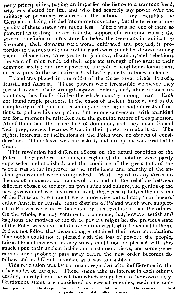 ―57― ―57―
petty principalities, paying an imperfect obedience to a common head,
who was elected for life, and who had scarcely any power over the
military or pecuniary resources of the nation. They resembled the
Germans in being divided into numerous states; but the territorial ine-
quality of these states was much less. There was no one of them so
powerful as to drag the rest into the support of a common cause; the
several chieftains or lords were far below the Germans in political re-
finement; their domains were worse cultivated and peopled, in pro-
portion to their extent; and military arts were much less known among
them. Hence they were prone to jealousy, disunion, and rebellion;
the want of union rendered their separate strength of no avail to their
common safety; and their powerful and politic, neighbours found them
an easy prey to the seductive arts of bribery, or to military violence.
Poland was placed in the midst of the three great rivals, Prussia,
Russia, and Austria. These powers were irresistible whenever they
pleased to exert their strength against Poland, and, after various re-
volutions, they finally divided the whole country among them. Each
one found ample pretexts, in the chaos of ancient history, and in the
complexity of all political reasonings on the rights and interests of na-
tions, to palliate his usurpation; but no one conversant with mankind,
can for a moment be mistaken as to the genuine nature of this partition.
All of them had the usual lust of dominion, and they made Poland
their prey, merely because it was in their power to make it so. The
rights, interests, or inclinations of the Poles were no objects of consi-
deration. Their leave was not asked, and no option was granted to
them.
This revolution had different effects on the actual condition of the
Poles. Everywhere the ancient rights of the nobility were partly
superseded and abolished, and the condition of the great bulk of the
people was so far improved as the turbulence and anarchy of the an-
cient government were extinguished. With regard to any direct in-
fluence on manners, on the useful arts, and on the relations between
different classes of society, on population and culture, the genius of the
new government was favourable in all these cases; but, as the maxims
of the Prussian government were more wise and salutary than those of
either Austria or Russia, those districts of Poland which were subject-
ed to Prussia were more benefited by this revolution than the others.
On the whole, we may venture to pronounce, that, however selfish and
flagitious the motives of the three powers might be, the previous state
of the Poles was such that the revolution was highly beneficial to them.
It does not follow that these changes obtained their own approbation.
The nobles could not be pleased with the loss of power; the people,
miserable and enslaved as they were, could not be pleased with this
attack upon their ancient habits and customary views, and some gene-
rations must probably pass away before the new order becomes fa-
miliar, and as difficult to violate as it was to establish.
This revolution was by no means regarded with indifference by the
other states of Europe. These states take an interest in each other's
destiny, merely from the relation which it may bear to their own safety.
Contiguous states are considered as eternal enemies, each one con-
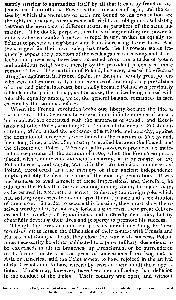 ―58― ―58―
stantly striving to aggrandize itself by all that it can, by fraud or vio-
lence, tear from others. Power is their measure of right, and the du-
ties by which the members of each are bound to his own nation are
thought, in practice, to supersede all rights or obligations subsisting
between the members of different states, as partakers of the same hu-
manity. The double purpose, therefore, of augmenting our power to
injure, or lessen another's power to repel injury, makes us equally so-
licitous to prevent a neighbour state from increasing its territory. And
thus, regard for their own safety has made the European states fre-
quently appear the protectors of the weak against the strong, and states,
feeble and powerless, have been screened from the attacks of potent
and ambitious neighbours, merely by the provident jealousy of more
remote states. The partition of Poland, however, created no effectual
struggles against it, in France, Spain, and Britain, the only great powers
who were not gainers by it, in consequence of the temporary prevalence
of other and partial interests, but chiefly because Poland was previously
a blank in the political map, and because, the prize being shared with
tolerable equality among three, the general balance remained, in fact,
essentially the same as before.
When the French revolution broke out, liberty became the idol of
the nation. This term has been used in an infinite number of senses,
but mankind are contented with the sameness of sound; and Kosci-
usko and other Poles, who fought in defence of the ancient Polish con-
stitution, which united the extremes of servitude and anarchy, against
the dominion of foreigners, were hailed as the martyrs of liberty, and,
for a long time, a kind of sympathy prevailed between the French and
the discontented Poles. This sympathy, however, produced no mate-
rial consequences till the autumn of 1806, when the French emperor,
placed, with a numerous and victorious army, as if by magic, on the
Polish borders, and waging war with the two principal plunderers of
Poland, recollected that the memory of their ancient independence
might probably be dear to some of the existing generation. It was
his business to avail himself of these impressions, and, therefore, he
informed the Poles that he was coming among them, to make them,
as he termed it, once more a nation; to destroy the foreign yoke which
had so long oppressed them, and give them a prince and a constitution
of their own. In order to secure this blessing, they must show them-
selves worthy of it, by not only forbearing to resist their great deliver-
er, and by avoiding an ignominious and cowardly neutrality, but by
cheerfully devoting their lives and property to promote his success.
Though the French could not possibly intend any thing by these
promises but to lessen the difficulties of their contest with Prussia and
Russia, and though, should they close the war with success, Poland
must necessarily be either subjected to a pure military despotism, to
be exercised, in all its branches, by Frenchmen, or be surrendered
to its former masters as the price of concessions from England, in
Asia or America, still the Poles appear to have rejoiced in the arrival
of the French, and to have cheerfully assisted them in all their opera-
tions. There may, however, have been more of policy than delusion
in the conduct of the Poles. Their country was open, and without
 ―59― ―59―
defence against the invaders. It was their interest, by every artifice
of adulation and submission, to obtain good treatment from a conqueror
whom they could not resist, and, if he were kind enough to offer him-
self to them in the character of protector and deliverer, they were
surely wise to accept him as such, and to counterfeit the necessary
marks of joy and gratitude, for the sake of the immediate benefit.
We are not able to say what aid the Russians would have been able
or willing to afford the Prussians, had the latter been able to maintain
the war, for the remainder of the year, on the Elbe and Weser. A
strong body of Russians, about sixty thousand strong, were collected,
in the beginning of October, on the Memel, the river which forms the
Russian frontier on the side of the Prussian states On the twenty-
second of that month, they began their march to Germany Saxony
was five hundred miles distant, and their utmost diligence could hardly
have brought them to this scene of action in less than a month. This
force, even if it had seasonably arrived, was very inconsiderable, and
would not have raised the army which opposed the French, supposing
it to have remained entire, to an equality even of numbers. It com-
menced its march eight days after the decisive battle of Jena, and had
not advanced forty miles when tidings of that event reached them.
Their aid being thus rendered useless, they returned to their own
territory, and the rapid approach of the French, even to their own bor-
ders, awakened them to the necessity of making much more formidable
preparations. At the time in which they reckoned on encountering
the French in Saxony, the enemy was at their own doors. They ac-
cordingly began to muster their armies in this quarter. Their de-
tachments occupied several posts in the Prussian territory, and parti-
cularly Warsaw. This city, being unfortified and disaffected, was,
however, abandoned on the approach of a superior body of the French,
which entered it without opposition, on the twentieth of November.
The great force of the French enabled them, at this time, to carry
on several contemporary projects. An army, under the nominal com-
mand of Jerome Bonaparte, entered Silesia, and was engaged in be-
sieging the strong holds in that province. Panic and treachery no
longer reigned in the Prussian garrisons, and these fortresses threat-
ened to make a long and obstinate resistance. Hameln, in Hanover,
did not capitulate before the twentieth of this month, and a detachment,
under Mortier, marched against the districts which belonged to Swe-
den, on the Baltic. The main army, under Bonaparte, was collected
in Poland. The French had not yet penetrated to the country on the
Baltic, between the Oder and Vistula; their present efforts were
directed against the Prussian territory lying between the last mentioned
river and the Memel, and which, with part of Austrian Poland, were
interposed between the Russian possessions and the country now in
the hands of the French.
The Vistula, which formed the western frontier of this territory,
has a devious course of more than two hundred miles, from Warsaw
to the sea. In this course, commerce has adorned its banks with a
few considerable towns, Marienwerder, Graudentz, and Thorn, which,
if carefully prepared for defence, had presented to the invaders
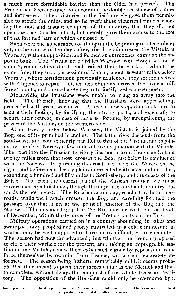 ―60― ―60―
a much more formidable barrier than the Oder had proved. The
French had been destined to encounter the double resistance of armies
and fortresses. Their victories in the field merely gave them permis-
sion to attack the cities, and, so far were these victories from occasion-
ing the total and instant conquest of the country, that they did not
open the road that led into it, but merely gave them access to the foot
of that fortified barrier which enclosed it.
Such were the appearances of things at the beginning of December;
yet, in the course of ten days after, the French crossed the Vistula at
Warsaw, without opposition, and formed an entrenched camp on the op-
posite bank. The Vistula here divides Warsaw from Praga, a kind of
suburb, round which the French raised their bulwarks. About the
same time, they took possession of Thorn, about seventy miles below
Warsaw, whose fortifications, previously neglected, they set themselves
with diligence to repair. Other detachments crossed the river at dif-
ferent points, and immediately began to fortify well-chosen posts.
Meanwhile, the Prussians were unable to bring an army into the
field. The French, knowing that the Russians were approaching,
proceeded with great wariness. At every new step, they took care to
secure their footing, by fortifying the strong posts, and especially to
secure their retreat, in case of adverse fortune, by strengthening the
passes of the Vistula, on the western side.
About twenty miles below Warsaw, the Vistula is joined by the
Bog, one of its principal branches. The latter river descends from the
south-east, in a course nearly parallel to that of the Vistula, and is join-
ed by the river Narew, a few miles above its junction with the Vistula.
The road into the Prussian territory lies north from Praga, and, about
twenty miles from that post, crosses the Bog, just below its confluence
with the Narew. In pursuing this road, we have the Narew on the
right, and before us a dreary plain, intersected with lakes and marshes,
extending a hundred and fifty miles to Konigsberg, and the coasts of the
Baltic. To reach the nearest part of the Russian frontier, we must
traverse an equal distance, though through a less difficult country to-
wards the north-east. The Russian armies approached by both these
roads, while the French crossed the Bog, and carefully fortified the
passage over that river, at the point of junction of the Bog and the
Narew. The advanced guard of the Russians arrived, on the tenth
of December, within thirty miles of the French posts on the Bog.
Military operations carried on in a country abounding in lakes and
swamps, thinly peopled and poorly cultivated, in a cold climate, and in
winter, may be well supposed to have many difficulties to encounter.
The season had now far advanced; but whether the French proposed
to close their warfare for the present, and, taking an impregnable sta-
tion on the Vistula, renew their exhausted vigour by repose, and rein-
force themselves by recruits from France, we are not accurately in-
formed. The season being hitherto remarkably mild, it seems proba-
ble that they meant to push their forces as far as the Memel, and thus
to complete, without delay, the conquest of the whole Prussian terri-
tory. The opposition of the Russians could only be overcome by a
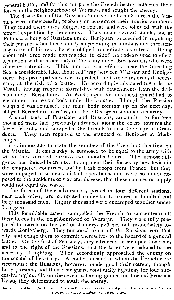 ―61― ―61―
general battle, and for this purpose the French hastily collected their
forces in the neighbourhood of Warsaw, and sought the enemy.
The first efforts of the Russians to drive the French across the Vis-
tula, were unsuccessful, probably on account of their inferior numbers.
They found themselves obliged to retreat, and were followed, with the
utmost expedition by the enemy. They made several stands, and at
Pultusk, a body of Russians under Benigzen, succeeded in repulsing
their pursuers, but these hourly augmenting in number, and threaten-
ing to cut off his rear, he was obliged to continue his retreat. Being
about this time made commander in chief, he endeavoured to effect
a junction with another body of the army under Buxhowden, who were
likewise retreating. This junction was effected near the Sperding
Sea, a considerable lake, about half way between Warsaw and Konigs-
berg. His principal view was to protect the latter city, even, if neces-
sary, at the risk of a battle. He accordingly advanced towards the
Vistula, having frequent skirmishes with detachments from the divi-
sion under Bernadotte. At Mœhringen his advanced guard had to
encounter the whole body under Bernadotte. Though the Russian
vanguard was repulsed, the main body coming up on the next day,
obliged Bernadotte to retire, and here Benigzen stationed his army.
A small body of Prussians and Russians, amounting to fourteen
thousand men, had previously advanced along the coast, towards the
lower Vistula, and compelled the French to raise the siege of Grau-
dentz. They then repaired to the standard of Benigzen at Mœh-
ringen.
It is impossible to state the number of the French at this time on
the Vistula. It can hardly be supposed to be equal to the army with
which they invaded Saxony, two months before. The utmost dili-
gence had indeed been used to augment their forces by new levies in
the conquered countries, and by fresh troops from France, but they
were engaged in so many distant operations, and were so much ex-
posed to the accidents of war and disease, that these sources of supply
could not equal the waste.
The forces of their adversaries, posted in four different stations,
near each other, are computed somewhat to exceed a hundred and
forty thousand men. Eighty thousand were encamped together under
Benigzen.
This formidable aspect compelled the French to concentrate all
their forces in the neighbourhood of Warsaw. They were fully pre-
pared to march on the last of January, and set out immediately to-
wards Konigsberg. They purposed to cut off the Russians from that
city, and oblige them to commit themselves to the hazard of a general
battle. On the first of February, they advanced so far upon this road,
and to the right of the Russians, that the latter were reduced to the
necessity of fighting. They accordingly approached the enemy on
the second of February. A contest ensued in which the French were
victorious; the Russians, however, made good their retreat, though
hotly pursued, and their rear guard continually fighting, for four suc-
cessive nights, till, on the seventh, having gained the town of Prussian
Eylau, they determined to await the enemy.
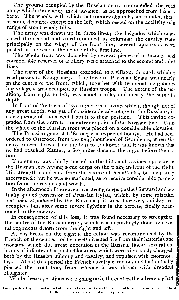 ―62― ―62―
The ground occupied by the Russian army commanded the road
along which the enemy must advance, as he approached from Lands-
berg. The woods, with which that country abounds, surrounded them
at some distance, except on the left, which rested on the acclivity of a
range of small woody hills.
The army was drawn up in three lines; the brigades which com-
posed the second and third remained in columns; the cavalry were
principally on the wings of the front line; several squadrons were
posted in the rear of the centre of the first line.
The whole front was defended by several pieces of ordnance, and
considerable reserves of artillery were attached to the second and third
lines.
The right of the Russians extended to a village, through which a
road passes to Konigsberg. The town of Prussian Eylau was nearly
in the centre of the front, which, together with two small neighbour-
ing villages, was occupied by Russian troops. The extent of the po-
sition from right to left, was about a mile, and nearly the same in
depth.
In front of the town of Eylau there is a ravine, which, though not of
any great depth, was yet of considerable advantage to the Russians, in
consequence of the ascent from it to their position. This ravine ex-
tended from the town to the extreme point of the Russian line. Thus
the whole of the Russian front was placed on a considerable elevation.
The Prussian general L'Estocq was expected hourly. He had been
ordered to Osterode, from the neighbourhood of Graudentz, when the
army moved forward on the first to Jankova; and it was known that
he had reached Zanter, a few miles distant, the night before the ac-
tion.
The enemy was chiefly posted on the hills and ravines opposite to
the Russian left, having some corps on the plain, in front of the right.
His strength could not, from the nature of his attacks, be accurately
ascertained; but he was so stationed, as to receive considerable protec-
tion from the ravines and woods.
In the afternoon of the seventh, a strong corps pushed forward and ac-
tually gained possession of Prussian Eylau, which, by some mistake,
had been abandoned by the Russians; it was, however, quickly re-
occupied, but, after some severe fighting in the streets, finally aban-
doned to the enemy.
In consequence of this loss, it was found necessary to strengthen
The centre of the Russian army, which was accordingly done by seve-
ral regiments drawn from the right and left.
At day-break on the eighth, the action was recommenced by the
French on the centre, and by a well-directed fire from their batteries and
mortars, which did great execution in the Russian lines: several co-
lumns of infantry also pushed forward, which were vigorously charged,
both by the Russian infantry and cavalry, and repulsed with enormous
loss. About this period the French cavalry came on, and had actually
pierced the front line, from whence it was driven with dreadful
slaughter.
While these operations were going on in the centre, the adversary had
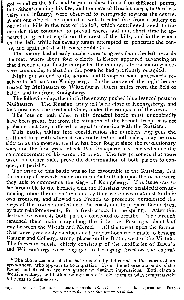 ―63― ―63―
got round on the left, and began to shew himself on different points,
but without opening his fire, and the several Russian corps, both of ca-
valry and infantry, were observed to retrograde towards the centre.
About one o'clock he opened a well-directed fire from a battery on
one of the hills in the rear of the left, which contributed much to the
disorder that continued to prevail there, and in a short time he ap-
peared in great strength on the crest of the hills, and in the woods
on the left, while his cavalry again attempted to penetrate the cen-
tre, and again failed with considerable loss.
The enemy had already made some progress from the left towards
the rear, when, about four o'clock, L'Estocq appeared advancing in
that direction, and finally compelled the enemy, after sustaining a se-
vere cannonade, to abandon the posts he had previously occupied.
Night put an end to the action, and Benigzen soon afterwards re-
solved to fall back on Konigsberg. In the course of the night he re-
treated by Mulhausen to Wittenburg, fifteen miles from the field of
battle, and ten from Konigsberg.
The following day, the ninth, the enemy pushed his advanced posts to
Mulhausen. The Russian army fell back close to Koningsberg, and
took post near the Fridland Gate, under the ramparts of the town.
The loss on both sides in this dreadful battle must undoubtedly
have been great, but from the situation of the French troops it is not
probable that they suffered in equal proportion with the Russians.
This battle, taking into consideration the numbers engaged, the
skill and fury with which it was contested on both sides, may be con-
sidered as the most severe that has been fought since the revolutionary
war, and the first great check that Bonaparte has received since the
commencement of his career, in 1796. The few prisoners that were
taken on either side, prove the determination of both parties to con-
quer, or perish*.
The issue of this battle was so far favourable to the Russians, that
the enemy afterwards made no immediate attack upon them, nor were
they able to commence the siege of Konigsberg. The issue was so
far favourable to the French, that the Russians were disabled from ad-
vancing upon them; on the contrary they were driven almost to their
own frontiers, and allowed the French to prosecute unmolested the
siege of the towns situated near the coast, and to prepare themselves,
by new reinforcements, for a fresh attack in the spring. After this
destructive contest, both parties consented to breathe. The French
cantoned their main army along the little river Passarge, about half
way between the Vistula and Memel. All the towns upon the former
river were previously subdued, and preparations were made to besiege
Dantzig and Colberg, strong places on the Baltic, west of the Vistula.
The forces in Silesia, chiefly consisting of the auxiliaries of Bavaria
and Wirtemburg, were engaged in besieging Breslaw, the capital,
* The above account of this battle is chiefly delivered in the words of an
eye-witness, who appears to be impartial. From the adverse accounts of the
French and Russians we can gather no distinct impressions. Both claim a
decisive victory, and both slew myriads of their enemies with comparatively
little loss to themselves.
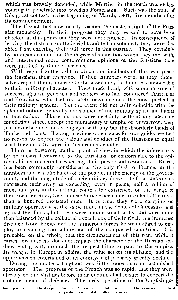 ―64― ―64―
which was bravely defended, while Mortier in the north was endea-
vouring to penetrate into Swedish Pomerania. Such was the state of
this great contest, at the beginning of March, 1807, five months after
its commencement.
The French had now nearly reached the eastern limit of the Prus-
sian monarchy. In their progress they may be said to have been
checked at this point, but they were not repulsed. In consequence of
leaving the districts on their right and left unsubdued, they were dis-
abled from exerting their full force in this quarter. They certainly
by no means counted on the degree of opposition which they met with,
and entertained more contemptuous opinions of the Russians than
were justified by their experience.
With regard to the light in which the incidents of this war place
the Russians, their resistance, if their numbers were, as they them-
selves report them, interior to the assailants, is doubtless honourable
to their military character. They made head, with some degree of
success, against generals and soldiers who had conquered Austrians
and Prussians, who had till lately been deemed the most perfect in
their military system. Yet the event did not fully coincide with the
splendid notions generally entertained of the military spirit and habits
of that nation. These notions were certainly without any adequate
foundation, since, except the momentary triumphs of Suwarrow, they
had never been seriously engaged with any but the disorderly bands of
Turks and Poles. Taking previous experience for our guide, we had
no reason to expect the valour and conduct of the Russians to equal
what they actually were in this arduous conflict.
There is, however, another point of view, in which the inference is
by no means favourable to the Russians, or conformable to the opi-
nions hitherto current respecting their power and resources. Russia
has been commonly considered as the only rival to France, in the
numbers and warlike habits of the people, in the energy of the govern-
ment, and the magnitude of their military force. Official statements
represent their army as exceeding, even in peace, half a million of
men, and yet, in this arduous contest for existence, on the verge of
their own territory, they appear to have been able to collect little more
than a hundred thousand men. It is true, they were carrying on
military operations, at the same time, in the defiles of Caucasus, and
against the Turks, but these were upon a small scale, and were more
than balanced by the collateral expeditions of their rival, his immense
distance from home, and the numerous forces he was obliged to em-
ploy in securing the submission of the conquered countries. It is
probable, on the whole, that the circumstances of this war, while it
raises, or, at least, does not impair, the character of the Russian sol-
dier, will greatly diminish the respect hitherto paid to the empire.
Its weight in European affairs, the value set on its alliance, and the
apprehension entertained of its enmity, will probably greatly decline.
During this contest, England was little more than an astonished
spectator. The progress of the French was so rapid, that they were
already on the Vistula, before their enemies had leisure to concert the
suitable means of defence. The tardy operations of the English go-
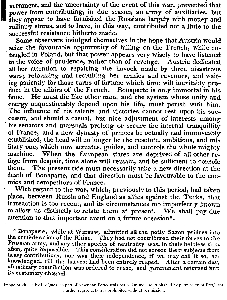 ―65― ―65―
vernment, and the uncertainty of the event of this war, prevented that
power from contributing, in due season, an army of auxiliaries, but
they appear to have furnished the Russians largely with money and
military stores, and to have, in this way, contributed not a little to the
successful resistance hitherto made.
Some observers indulged themselves in the hope that Austria would
seize the favourable opportunity of falling on the French, while en-
tangled in Poland, but that power appears very wisely to have listened
to the voice of prudence, rather than of revenge. Austria dedicated
all her attention to repairing the havock made by three disastrous
wars; reforming and recruiting her armies and revenues, and wait-
ing patiently for those turns of fortune which time will inevitably pro-
duce in the affairs of the French. Bonaparte is only immortal in his
fame. He must die like other men, and the system whose unity and
energy unquestionably depend upon his life, must perish with him.
The influence of his talents and victories cannot rest upon his suc-
cessor, and should a casual, but nice adjustment of interests among
his senators and marshals prolong or secure the internal tranquillity
of France, and a new dynasty of princes be actually and immoveably
established, the head will no longer be the resolute, ambitious, and mi-
litary one, which now actuates, guides, and controls the whole mighty
machine. When the European states are deprived of all other re-
fuge from despair, time alone will remain, and be sufficient to console
them. The present tide must necessarily take a new direction at the
death of Bonaparte, and that direction must be favourable to the ene-
mies and competitors of France.
With regard to the war, which, previously to this period, had taken
place, between Russia and England as allies against the Turks, that
transaction is too recent, and its circumstances too imperfectly known
to allow us distinctly to relate them at present. We shall pay due
attention to that important event on a future occasion*.
* Bonaparte, while at Warsaw, admitted all the petty Saxon princes into
the confederation of the Rhine. They had not contributed their forces to the
Prussian army, and any other species of neutrality was, in their helpless situ-
ation, quite impossible. This consideration did not screen their subjects from
heavy contributions, nor was their independence, if we may call it so, ac-
knowledged, till the harvest had been entirely reaped. After a certain day,
all military contribution, was ordered to cease, and government returned into
its customary channel.
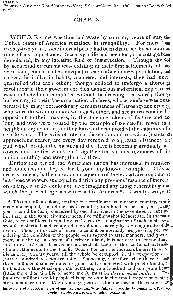 ―66― ―66―
CHAP. X.
WHILE Europe was thus laid waste by so many years of war, the
United States of America remained in tranquillity. For more than
twenty-two years, their internal peace had been disturbed by no commo-
tions of any importance. Scarcely a life had been lost, or a cottage been
demolished, in any intestine feud or insurrection. Though divided
by accidental circumstances, existing at their first settlement, into se-
veral independent states, unequal to each other in size, population, and
riches, dissimilar in habits, manners, and interests, they had never
quarrelled with each other; though obliged to undergo a thorough
revolution in their government, this dangerous and critical experiment
was conducted and completed without the drawing of a sword; though
harbouring in their bosom, a nation of slaves, whose bondage was exas-
perated by many extraordinary circumstances of hardship and cruelty,
who were drawn into union with each other, and set in irreconcileable
opposition to their masters, by the indelible tokens of feature and co-
lour, and who were roused by the example of successful revolt in a
neighbouring country, yet they have hitherto avoided the calamity of a
servile war. The evils of internal dissention and rebellion, instead of
approaching nearer, are every day removed to a greater distance; the
gulf which divides the master and the slave is becoming gradually nar-
rower, and the ties which bind together the various members of the
nation multiply and strengthen by time.
During this period, the American nation has increased in numbers
and opulence, in a degree far beyond any known example. This in-
crease, indeed, is the natural consequence of their local circumstances;
but those who were unacquainted with any previous instance of increase
on so large a scale, could not have imagined any thing resembling that
which the present age has witnessed in America*. Twenty-two years
* That an infant colony, settling in a fertile and wholesome country, previ-
ously unoccupied, should increase from fifty to a hundred persons, in twenty,
years, could be easily conceived by one that lived in the seventeenth century;
but that, in the same circumstances, five millions should increase, in the same
time, to ten millions, is equally certain, yet the imagination of such an observer
would be startled and rendered incredulous merely by the magnitude of the
event. Though this rate of increase cannot be eternally progressive, yet, con-
sidering the condition of the people with regard to arts, manners, and govern-
ment, and the actual extent of territory inland, it is not easy to set the due li-
mits to it. We can discover no material obstacle to the continual extension
of our settlements to the Pacific Ocean, nor can the increase be less than dou-
ble in every twenty years, till the whole be occupied, in the proportion of at
least a hundred to a square mile. Supposing, therefore, that there is only
three millions of square miles of good land, connected with good climate, on
both sides of the Missisippi, our numbers, in a hundred and ten years hence
(little more than the life of some men), must be three hundred millions. Two
hundred millions would people this space only in the small proportion of sixty-
six to a square mile. Mighty and gigantic as this increase is, the reader must
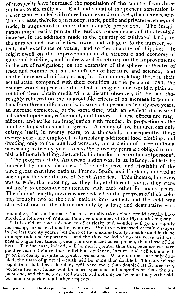 ―67― ―67―
of prosperity have increased the population of the country from three
millions to six millions. Each individual of the present generation is
richer, is surrounded with more luxuries and comforts, than his ancestor.
The increase, therefore, in money, stock, public and private revenue, and
trade, is augmented in more than a double proportion. The imagi-
nation might easily pursue the various consequences of this two-fold
increase, in the additions made to the quantity of cultivated land; to
the number and size of cities, towns, and villages; to the number, ex-
tent, and excellence of roads; and to the quantity of shipping. It
might dwell on the improvements in the structure and economy of
cities and buildings, and in dress and furniture; on the improvements
in the art of navigation; on the extension of the sphere or theatre of
trade and commerce; on the diffusion of literature and science; and
on the increase of military strength. In contemplating these in their
actual state, compared with their condition at the peace of 1783, the
change would appear like the effect of magic; nor would a plain ac-
count of them obtain credit with a distant observer, till he had tho-
roughly reflected on the unavoidable effects of an increase in popula-
tion, from three millions to six, in so short a period as twenty-two years,
an increase connected, at the same time, with an evident increase of
individual opulence, refinement, and luxury. These effects are mag-
nificent, and strike the imagination with wonder, in proportion as the
number doubled is small or great. A colony of five hundred can only
enlarge itself, in twenty years, to a thousand; consequently, these
twenty years are employed in furnishing additional food, clothing, and
dwelling only to five hundred persons; but a nation of three millions,
increasing in twenty years to six, these twenty years are obliged to fur-
nish additional clothing, diet, and habitation for three millions of persons*.
The progress of the American nation was, in its infancy, liable to be
impeded by many obstacles. The enterprize and rivalship of the
three great maritime nations, France, Spain, and England, entered at
once upon the vast theatre of North America. This theatre, however,
was so wide, that entering, as they did, at different points, they were
not likely to encounter or interfere with each other for many years.
The time at length, however, arrived, when the progress of their colo-
nies brought two of the rival nations into contact, and the field was
cleared of one of the claimants only by a long and destructive war.
remember, that the increase that has actually taken place would equally have
startled a follower of William Penn, or a member of the Plymouth company.
* It is evident that this source of curiosity and wonder will go on rapidly
increasing, for at least another century. We have witnessed certain changes
in the last twenty years; but those of the ensuing twenty must be double these
in magnitude and importance; and the third period of twenty years will wit-
ness changes four times greater, in extent and consequence, than those of the
first. The increase, indeed, will be much greater than this, because we have
good reason to believe that individual opulence, luxury, and refinement will
go on increasing in quite as great a proportion. While numbers are only dou-
bled, the mass of general wealth will be more than doubled. The city whose
population shall have doubled, will have more than doubled its former size,
because the new house will be more spacious and magnificent than the an-
cient one, and the new created street will not only be twice as long as the old,
but much superior in all other respects.
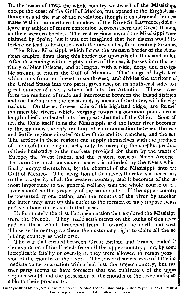 ―68― ―68―
By the peace of 1763, the whole country westward of the Missisippi,
except the coast of the Gulf of Mexico, was opened to the English set-
tlements, and the war of the revolution, though it constrained the new
states within the northern boundary of the River St. Lawrence, did not
leave any subject of future contention between them and Great Britain,
on their western border. The vast regions beyond the Missisippi were
claimed by Spain; but it was not imagined that her claims would in-
terfere or lead to hostilities with the new states, for a century to come.
The River Missisippi, which forms the western border of the Ame-
rican empire, flows along this border for upwards of a thousand miles.
After descending within eighty miles of the sea, it passes into the ter-
ritory of New Orleans, and at length, with a wide, deep, and naviga-
ble stream, it enters the Gulf of Mexico. That ridge of high land
which runs from north-east to south-west, and divides the territory of
the United States into two parts, gives rise, on its south-east side, to a
great number of rivers, which fall into the Atlantic. These rivers
form the medium of trade and intercourse between the inland districts
and the harbours on the coast, and, by means of the latter, with foreign
nations. On the north-west side of this highland ridge, are formed
innumerable rivers, which, verging towards a common point, are at
length chiefly collected into the great channel of the Ohio. Soon af-
ter, the Ohio itself joins the Missisippi, and the latter river becomes,
in this manner, the only medium of communication between the vast
and fertile regions situated on the Ohio and its branches, and the sea.
The settlers in these regions can supply themselves with the products
of the useful and elegant arts, only by carrying the surplus produce
of their husbandry to the markets provided for them by the wants of
Europe, the West Indies, and the eastern coast of North America.
To these the most convenient access is afforded by the rivers which
finally empty themselves, by the channel of the Missisippi, into the
Gulf of Mexico. The navigation of this river, therefore, is necessary
to the prosperity of all the western country, and it becomes of the ut-
most importance to the general welfare, that the whole course of the
river should be the property of the same state. If the upper country
be possessed by one nation, and the mouths of the river by another,
the latter may shut up this outlet to the former, or may impose heavy
and vexatious duties on all that pass.
Unfortunately the first European nation that explored the Missisippi
were the French. They made settlements on the banks of this river,
and on those which branched from it towards the north and west.
Those settlements gave them the customary right to claim all the ad-
joining country as their own.
The war that ensued between Great Britain and France ended in
the expulsion of the French from all the upper country; but, by some
inexplicable fatality or oversight, they were allowed to retain posses-
sion of the mouths of the river. The lower districts were of little im-
mediate value to a nation which had lost the upper country, but nei-
ther party seems to have foreseen that the cultivators of the upper
regions would find the possession of the mouths of the river indispen-
sible to their prosperity.
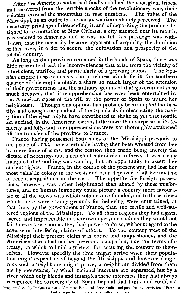 ―69― ―69―
After the American states had finally subdued the aboriginal tribes,
and recovered from the terrible shocks of the revolutionary war, their
colonies crossed the mountains in vast numbers. The value of the
Missisippi, as an outlet to the ocean, was immediately perceived. The
necessary privilege of descending it, and of depositing the produce de-
signed for exportation at New Orleans, a city situated near its mouth,
was secured to America, and it was not till this privilege was with-
drawn, that the necessity became apparent of acquiring the dominion
of this river, in order to secure the cultivation and prosperity of the
inland country.
As long as this province remained in the hands of Spain, there was
little reason to dread the inconveniences that arise from the vicinity of
a turbulent, warlike, and particularly of a growing nation. The Spa-
nish empire is so extensive, the provinces which lie in the southern
quarter of this empire obtain a share so much larger of the attention
of their government, and the military genius of that government is so
much decayed, that little apprehension has ever been entertained by
the American states of the will or the power of Spain to injure her
neighbours. Though this opinion has probably been adopted too has-
tily, and though the conduct of the Spaniards in obstructing the navi-
gation of the river might have contributed to shake it, yet that hostile
act excited, in the American nation, little more than surprise at its te-
merity and folly, and our apprehensions were not thoroughly awakened
till the transfer of the province to France.
France having possessed both sides of the Missisippi previous to
the peace of 1763, the eastern side having then been wrested from her
by mere force of arms, and the cession then made being merely the
dictate of necessity, and a reluctant submission to force, it was easily
imagined that nothing was wanting but an opportunity to assert her
ancient rights. France, jn the course of the present war, had lost her
most valuable colony in the west, and been deprived of all her ancient
or recent acquisitions in the east. The appetite for foreign posses-
sions, however, was rather heightened than abated by those misfor-
tunes, and no human ingenuity could picture a country more favoura-
ble to all the views with which colonies are founded, and to those views
which there were strong grounds for believing were entertained, at
that time, by the government of France, than the fertile and well-wa-
tered regions of the Missisippi. To all these regions they had rights,
sacred and imperishable in their own eyes, and such as they would not
fail to exert, as soon as they had power to do so, without regard to the
adverse or interfering claims of others. To the country west of the
Missisippi their present claim was entire and unquestioned, and the
American states had neither previous occupation, nor the terms of a
treaty, on which to build a pretext for securing the country to them-
selves. However speedily the time might arrive when their popula-
tion might expand itself beyond the Missisippi, and however dange-
rous such a neighbour might prove, a neighbour divided from them
not by mountains, by which national interests are separated, but by a
river which only blends and intangles these interests, they had always
recognized the sovereignty of Spain beyond that limit, and could not
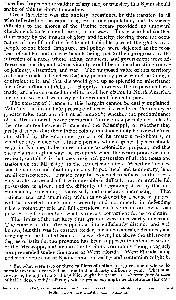 ―70― ―70―
therefore impeach the validity of any sale, or transfer, that Spain should
make of this territory to another.
Great therefore was the anxiety occasioned by this transfer, in all
who reflected on the rapid progress of our population, and its speedy
diffusion to the shores of the Pacific ocean, provided no untoward
check or obstacle should rise up in its way. Those who had soothed
their fancy by the images of glory and felicity, flowing from the occu-
pation of one fifth of the fertile and habitable part of the globe, by a
people of one blood, language, and policy, were dejected at the pros-
pect of sudden and narrow bounds being put to their progress, by the
intrusion of a race, whose habits, manners, and government were ad-
verse and hostile, and whose vicinity would be an inexhaustible source
of jealousy, dissention, and war. The supposed value of this territory
to France made it hopeless that any pecuniary price would be thought
equivalent to it, and that she would give up so splendid an inheritance
for a few millions of dollars. Happily, however, the experiment was
made, and she consented to sell to us all her claims in North America,
for a sum which it was easy and convenient for us to pay.
The consent of France to this bargain cannot be easily explained.
Whether the immediate pressure of necessity rendered the money of
greater value than any distant advantage*; whether the predominance
of the British naval power threatened to raise insuperable obstacles to
the intercourse between France and the Missisippi; or whether they
justly dreaded that their infant colony must inevitably be overwhelmed
and stifled by the enormous growth of its western neighbours, or
whether they conceived a future period, when a general peace should
reign in Europe, to be more suitable to colonizing projects, and that
their claims might always be resumed, when the resumption was con-
venient, certain it is that they resigned possession of all the posts and
stations on the Missisippi to the American states. Whether this ces-
sion be sincere and absolute, or only hypocritical and temporary, is of
small consequence. France may be expected to adhere to the treaty
only while the breach of it is impossible or difficult, but meanwhile full
possession is given, and the difficulty of regaining it is, by that cir-
cumstance, exceedingly increased, and constantly increasing. That
national zeal and unanimity which is awakened by a sense of justice,
will be exerted much more warmly and completely in defending
what a voluntary sale and full consideration have made our own, than
in wresting from another what is merely convenient for us to obtain.
The limits of the territory thus granted were necessarily uncertain.
The course of the Missisippi is a line sufficiently distinct and well
known, but this was its eastern border, for a considerable distance, and
verging on the United States. Lower down, but above the thirty-first
degree of latitude, the province has been supposed to extend eastward
of the Missisippi, and far into the territory commonly though vaguely
comprehended under the name of West Florida. West Florida being
under the dominion of Spain, some bickering and contention might be
* Yet what were two or three millions of dollars to a government whose do-
mestic evenue exceeded an hundred and forty millions a year. That sum,
however, though little to the public, might be great as a douceur pour la poche
of half a dozen public officers, whose yea or nay might be absolute in this case.
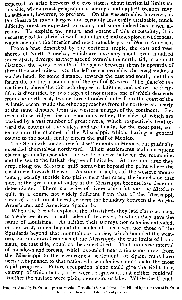 ―71― ―71―
expected to arise between the two states, about territorial limits on
this side, Which exact geographical surveys and explicit treaties may
be sufficient, however, to prevent. On the western side, however, as
the theatre is much larger, and certainly less easily attainable, much
difficulty must be expected to incur, and some indeed has arisen al-
ready. To explain the nature and extent of this uncertainty, it is
necessary to take a brief view of that untamed and unexplored wilderness,
which occupies the interior and most valuable part of North America.
From a base described by the northern tropic, the east and west
shores of North America, which are here only about seven hundred
miles apart, diverge as they ascend towards the north, till, at a small
distance, the actual breadth of the space between them is upwards of
three thousand miles. On the left-or eastern side, the coast makes a
sudden bend, for some distance, towards the east and south, and thus
forms the northern boundary of the gulf of Mexico. The plane of the
continent, above the thirtieth degree of latitude, and below the forty-
fifth, is diversified by two ridges of mountains, one of which descends
from the north-east, two or three hundred miles from the coast of the
Atlantic ocean, while the other approaches from the north-west, nearly
at the same distance from the western margin of the continent. Be-
tween these ridges lies an enormous valley, the sides of which are
washed by a vast number of great rivers, which respectively tend to-
ward the bottom of the valley, and are finally, for the most part, col-
lected into the channel of the Missisippi, which, having a general
course to the south, finally enters the gulf of Mexico.
The Spaniards made their first settlements in Mexico, but gradually
extended themselves northward. Their settlements and consequent
claims gradually ascended the western coast between the mountains
and the sea to the fiftieth degree of latitude. At the same time they
crept along the Mexican gulf, somewhat beyond the point where the
coast turns towards the east. As some branches of the western moun-
tains gradually subside into plains near that coast, the bounds, on that
side, of the great inland valley of the Missisippi, become less clear and
determinate. There is a series of rivers which fall into the Mexican
gulf, in a course not widely different from that of the Missisippi,
some of which must hereafter form the boundary between the Anglo-
Americans, and American Spaniards.
When the French explored the Missisippi, they laid claim as usual
to a wide territory on both sides of this river, to which they gave the
name of Louisiana. As neither their surveys nor colonies extended,
on the west, much beyond the banks of this river, nor those of the
Spaniards beyond that mountainous barrier, which bounded the west-
ern, but unknown branches of the Missisippi, the true limits of Loui-
siana, on that side, could not be ascertained. That immense interval
of meadows and forests, which extended near a thousand miles from
the Missisippi to the easternmost settlements of Spain, must have
been relinquished to that nation whose colonies should make the most
rapid progress. Future occupation alone could give the right to a
country, of which both parties were so ignorant, that neither could tell
whether the surface were plain, mountain, or lake. While the French
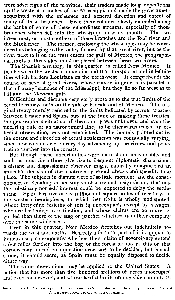 ―72― ―72―
were sovereigns of the province, their traders made long expeditions
up the western branches of the Missisippi, and made the government
acquainted with the existence and general direction and extent of
many of these branches. Even their colonies slowly extended along
the banks of some of these subordinate streams, especially of those
branches which fell into the Missisippi near its mouth. The two
lowermost, or most southern of these branches are the Red river and
the Black river. The former, enclosing the Missisippi, may be consi-
dered as belonging to the valley formed by that great river, but as the
river next to it on the west enters the gulf of Mexico, the geographi-
cal limits of this valley must be placed between these two rivers.
The Spanish territory, in this quarter, is called New Mexico. It
lies between the western mountains and that unexplored and indefinite
line which borders Louisiana on the north-west. It comprehends the
course of several great rivers, whose course in general is parallel to
that of many branches of the Missisippi, but they lie so far west as to
fall into the Mexican gulf.
Difficulties and disputes very early arose as to the true limits of the
ceded territory, both on the side of Florida and of Mexico. The ori-
ginal treaty merely referred to the limits indicated by former treaties
between France and Spain, but, at the time of making these treaties,
the geographical situation of the country was unknown, and even the
unerring rule of an astronomical line, to be afterwards traced by ce-
lestial observation, was not established. The bounds pointed out by
the extent and direction of actual settlements was continually varying,
since new colonies were every day advancing up the rivers, and pene-
trating further into the forests.
But though these uncertainties were natural and unavoidable, and
such as must for a time give rise to frequent diplomatic discussions,
a distant and dispassionate observer might naturally imagine that an
amicable decision of the controversy would always and speedily take
place. The subjects in dispute were of so little moment, and the conse-
quences of deciding either way so obscure and insignificant, that nei-
ther obstinacy nor self interest could be expected to delay the settle-
ment. Spain has five or six millions of square miles of territory, in
the western hemisphere, to which her right is wholly undisputed.
About forty-nine fiftieths of this is unoccupied, except by savages,
who are hastening to extinction, and whose claims are no more re-
garded than those of the stag or panther which roam in their company
over the same wilderness.
Even in this quarter, New Mexico stretches out indefinitely to-
wards the west and north. Scarcely a fortieth part of it is applied to
human use; consequently whether their claim of sovereignty extend
a few miles further into the bog or the forest or not, at this or that
corner, may indeed be a question necessary to be decided, but is such
a one, it should seem, as Spain must be equally disposed to decide
either way.
The same observations may be applied to the United States. A
nation that has more than five hundred millions of acres unoccupied
and even unsurveyed, and whose lawful limits on one side can only be
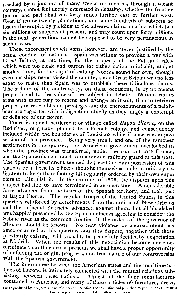 ―73― ―73―
reached by a journey of many weeks or months, through a vacant
country, cannot feel deeply interested in debating, whether the frontier
line on one part shall run forty miles further east or further west.
Even if ten or twenty plantations, and some hundreds of subjects be
lost to the empire by yielding to the adverse claim, a nation which has
six millions of subjects at present, and may count upon forty millions
in the next generation, cannot be supposed to be very pertinacious in
such a case.
These theoretical conclusions, however, are never justified by the
actual conduct of nations. Spain was willing to provoke a war with
Great Britain, at one time, for the property of the Falkland isles,
which were too bleak and barren for either nation to inhabit, and, at
another time, for the right of calling Nootka sound her own, though
even her ships never visited the country; and Great Britain was no less
eager to resist than Spain was to establish these ridiculous claims.
The ardour of the controversy, on these occasions, is by no means
proportioned to the value of the subject in debate. Nations run to
arms with more fury to resent and avenge an insult, than to retrieve
property or re-establish a privilege, and the encroachments of a neigh-
bour are regarded with indignation chiefly as they imply a contempt
or defiance of our power.
There is a small settlement or village called Bayou Pierre, on the
Red river, originally planted by a French colony, and consequently
included within the boundaries of Louisiana while France was in pos-
session of that province. Being very small, and one of the remotest
settlements in this quarter, the American government overlooked it,
when the province was transferred, under the contract with France,
and the Spaniards continued to maintain a military guard at this post.
The Spanish government seemed disposed to retain possession of this
station, or at least its officers thought themselves under a military ob-
ligation to keep their looting till regularly ordered by their own supe-
riors to relinquish it. In the summer of 1806, the disputes upon this
subject had like to have terminated in an open war. A considerable
force advanced from the heart of the Spanish territory, and took post
at Bayou Pierre. The regular troops of the United States, in this
quarter, reinforced by detachments from the militia of New Orleans
and the adjacent districts, advanced against them, but all bloodshed
was happily prevented by the Spanish officers agreeing to consider the
Sabine river as the common frontier till the orders of the governor of
Mexico should be known. No new violence or encroachment has
since occurred in this quarter, and this dispute, together with those
previously existing, will probably be peacefully decided by negociation
at Madrid. When the results of this negociation become more de-
terminate than they are at present, we shall have a proper opportunity
of unfolding the origin, progress, and true nature of our controversies
with the Spanish government.
The intercourse between the American states and the maritime na-
tions of Europe is intimately connected with the mutual relations sub-
sisting between these nations. Almost all the finer manufactures
consumed in America, and many of those articles of furniture, dress,
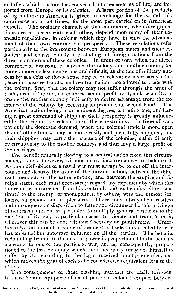 ―74― ―74―
and diet, which custom has converted into necessaries of life, are im-
ported from Europe or its colonies. A large portion of the products
of agriculture in America is given in exchange for these, and this
commerce is, at all times, for the most part carried on in American
vessels. The ordinary channels of this commerce, when foreign na-
tions are at peace with each other, depend upon many of their do-
mestic regulations, in making which they have in view the advance-
ment of their own commercial prosperity. These regulations refer
particularly to the intercourse between European states and their co-
lonies; and consist chiefly in excluding all foreign nations from the
direct commerce of these colonies. In times of war, when the direct
commercial intercourse between the colony and mother country be-
comes more or less dangerous and difficult, as the tide of military suc-
cess by sea ebbs or flows, some degree of relaxation necessarily takes
place in these restraints, and neutral nations are allowed to trade with
the colony, first, that the colony may not suffer through the want of
trade, even if the mother country cannot profit by it, and, secondly, to
enable the mother country indirectly to derive advantage from the ex-
istence of the colony, by receiving its products at second hand. The
American nation being, in an eminent degree, a trading one, and hav-
ing a great command of shipping, their prosperity is greatly influenc-
ed by the rigour or relaxation of these restraints. In time of war,
not only the domestic demand, when the colonial trade is more open
than at other times, may be more easily and plentifully supplied, but
their shipping may carry the produce of the colonies, either directly
or circuitously to the mother country, and thus levy a large profit on
the carriage.
The benefit naturally flowing to a neutral nation from this circum-
stance, is not, however, without many inconveniences to balance it.
As the chief object of a naval war must always be to cut off the inter-
course and destroy the trade of the hostile nation, between the diffe-
rent members of the same empire, and between the empire and fo-
reign states, each must necessarily regard any expedient by which this
intercourse is screened from his controul, and its benefits either con-
tinued to the enemy, or monopolized by others, with the utmost jea-
lousy, suspicion, and displeasure. There must always be a restless
and unconquerable disposition to fetter and circumscribe this privilege
of neutrals as much as possible; to multiply general obstacles to the
exertion of it, and, in particular cases, to violate and trample on it,
wherever this can be done without discovery or punishment. Unfor-
tunately, the amount or value of the neutral trade thus created by war
has an equal but untoward influence on all the parties. The benefits
redounding from it to the neutral power, is proportioned to the benefits
accruing to one of the parties at war, and is, consequently, propor-
tioned to the loss or injury which the other party imagines himself to
suffer by it: according to the logic received among enemies, and
which makes the gain of each to be considered as equivalent loss to the
other.
The consequences of these clashing interests are easily foreseen.
If there be any equipoise of naval power or colonial empire between
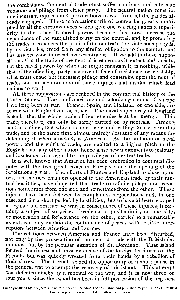 ―75― ―75―
the combatants, the neutral trade must suffer continual and alternate
vexation and pillage from either party. The neutral nation must in-
cur incessant injuries and provocations to war from all the parties al-
ready engaged. These provocations will of course be greatly multi-
plied by all the circumstances which give one warring nation a superi-
ority to the other in naval power, because this must increase the
dependence of the vanquished party on the neutral, and, by promoting
the trade, it enhances the profit of the neutral: the victorious party is,
by his victories, freed from any similar obligation to the neutral, and
has less occasion to dread his resentment, if we add to these suppo-
sitions, that the trade of the neutral is enormous in extent and variety,
but the naval power, by which he might maintain it, is nothing, while
that of the offending party is above all fear of resistance or rivalship,
what must ensue but incessant pillage and constraint upon the neutral
trade, and an accumulation of those injuries and insults which lead
nations to war?
All these suppositions are realized in the commercial history of the
United Slates. The chief maritime and colonizing nations of Europe
have long been at war. France, Spain, and Holland, on one side, are
at war with England on the other. The naval superiority of England
is such, that the whole trade of her enemies is at her mercy. This
trade, therefore, can only be safely carried on by neutrals. Among
neutral nations, that which is most able and willing to carry on this
trade) and at the same time almost entirely destitute of any means for
defending it when attacked, is America. As the ambition of naval
power, and the spirit of trade, are exalted to a higher pitch in the
English than any other nation, hence arise new incitements to jealousy
and insolence with regard to the privileges of neutral trade.
It is well known that America has been embroiled in continual dis-
putes with the two great rivals in Europe, since the opening of the
revolutionary war, The efforts of France and England to close up or
obstruct the new channels opened to the American trade by their mu-
tual hostilities, have subjected that trade to infinite pillage and vexa-
tion, sometimes from one side and sometimes from the other. These
injuries have been followed by complaints, negotiations, and, in one
case, and for a short period, by hostilities; but to have hitherto escaped
a regular and destructive war, in consequence of these injuries, is cer-
tainly a subject of surprise. Prudence or pusillanimity on one side,
or moderation and forbearance on the other, carried to a remarkable
extent, can only explain the continuance of peace, with so little inter-
ruption, between America and Europe.
The relations between America and France have been disturbed,
not only by the prosecution of the neutral trade with the British do-
minions, but by the peculiar situation of St. Domingo. That island
formed the richest and most extensive of the foreign territories of the
French, but was quickly wrested from their hands by a rebellion of
their slaves. The French seized the opportunity of a short pause in
the general war to attempt the recovery of this island. This attempt
was defeated chiefly by a renewal of the war, and it is now three or
four years since the island has been in full possession of the negroes,
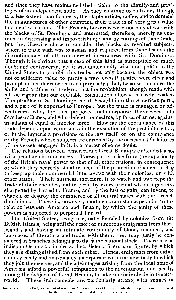 ―76― ―76―
and since they have maintained their claim to the dignity and privi-
leges of an independent state. As they continue to cultivate, though
to a less extent than formerly, the staple article, coffee, and to demand
the manufactures of other countries, their trade is of very great value
to a neutral nation. The French, however, were not only at war with
the blacks of St. Domingo, and interested, therefore, merely as ene-
mies in distressing and impoverishing them by cutting off their trade,
but they likewise chose to consider the blacks as revolted subjects,
whom to trade with was to assist, and required from their friends the
discontinuance of all commercial intercourse with St. Domingo.
Though it is obvious that a case of this kind is susceptible of much
doubt and controversy, yet it was undoubtedly wise and politic in the
United States to prohibit this trade, not only because the object was
not of sufficient value to justify a war, even if justice were clear and
prompt in her decision as to its propriety; but, because such are the
shifts and artifices of traders, that the prohibition, though made with
all the rigour that our equitable constitution allows, is easily evaded.
The produce of St. Domingo is still brought into the American ports,
and a part of it exported to Europe; but the trade is managed by ad-
venturers, who, for this purpose, metamorphose themselves into
Swedes or Danes, and who defend themselves, by force of arms, against
assailants of equal or inferior force. How far the continuance of this
trade depends upon remissness in the execution of the prohibitory law,
or in the imperfect provisions of the law itself, or on the connivance
of the French, whose subjects are enriched by the occasional forfeitures
of the vessels engaged in it, is a matter of some doubt.
The relations between America and Great Britain are attended, also,
with peculiar circumstances. These partly arise from the superiority
of the British naval power to that of all other nations, in consequence
of which they scarcely stand in need of the protection of a neutral flag
to keep up their commercial intercourse with their colonies, or with
other states. Their business, therefore, is to watch and intercept the
trade of their enemies, and to profit by every pretext which ingenuity,
sharpened by hatred to France, and by the lust of gain, can invent, to
shackle or destroy the commerce of all neutral states with the French
dominions. There is, however, another circumstance peculiar to the
relation between America and Britain, by which the amity of these
powers is subjected to perpetual hazard.
The United States, being originally founded by colonies from the
British islands, being still the resort of numerous emigrants from those
Islands, and having an intimate community of blood, manners, and
language, of literature and trade, with them, they may justly be con-
sidered as branches belonging to the same national stock. There are no
indisputable marks in dress, diet, dialect, feature, or figure, by which
they are distinguished from each other. Hence, emigrants from either
country easily and unavoidably incorporate with the new body to which
they join themselves, and the advantages arising from the local state of
America afford a powerful temptation to the adventurous and needy,
among the subjects of Great Britain, to take up their abode in the new
world. These inducements are particularly strong with regard to
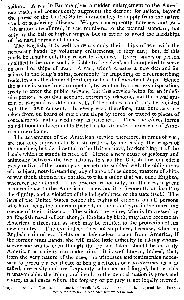 ―77― ―77―
sailors. A war in Europe gives a sudden enlargement to the Ameri-
can trade, and consequently augments the demand for sailors, beyond
the power of the United States immediately to supply from the native
stock of sea-faring citizens. Wages consequently increase, and Bri-
tish sailors are allured, in vast numbers, to the neutral standard, not
only by the bait of higher wages, but in order to avoid the hardships
of the naval service at home.
The English, it is well known, supply their ships of war with the
necessary hands by voluntary enlistments, if they can; but, if this
mode be insufficient, they resort to violence. Every sailor, or person
qualified to become such, is liable to be seized, and compelled to serve
on board of ships of war. A war, which creates a new demand for
sailors in the king's ships, commonly, by impeding or circumscribing
trade, lessens the demand for them on board of merchant ships. Hence
the sailor is sometimes compelled, by want or by a restless disposition,
freely to enter the public service, but this service being for an indefi-
nite period, is, on that account, extremely irksome, and the naval sys-
tem of England would stand still, if the sailors could only be enlisted
with their own consent. In every war, therefore, vast numbers are
taken from on board of merchant ships by force, or traced to places of
concealment, and carried away as prisoners. This, therefore, forms
an additional inducement to British sailors to enter the service of Ame-
rican merchants.
The advantages of the American service, therefore, in times of war,
are not only injurious to British traders, by increasing the wages of
the mariner, but detrimental to the British navy, by depriving it of the
hands which it stands in need of. Hence a new cause of jealousy and
animosity between the two nations, for, as the British law considers
every native of the country as perpetually saddled with the obligations
of a subject, notwithstanding any change of residence, masters of ships
of war think themselves entitled to take a sailor that was once English,
wherever he is found. This practice is not only, in all cases, a great
inconvenience to the American trader, but it is frequently an insult to
the dignity, and a violation of the independence of the state itself. The
laws of the United States confer the rights of citizens on all persons
who have been, for a certain period, in the country, or in the maritime
service of their citizens. The sailor, therefore, who is impressed by
an English naval officer, though English by birth, may have become an
American citizen, and as such may be entitled to the protection of his
new country. The evil indeed does not stop here, because, when an
English ship of war lights on a defenceless trader from America, if
the former want hands, she will make little difficulty in taking whom-
soever she wants, even though the person taken should be as truly
American as nativity can make him. It is well known, indeed, that,
from the very nature of the case, the witnesses and testimonies neces-
sary to procure a certificate of being a citizen, or a protection, as it is
called, are easily and are frequently suborned and forged, but as this
is unavoidable, the injury and insult to the neutral nation is gross and
entire, in all cases where the forgery or perjury is not legally proved.
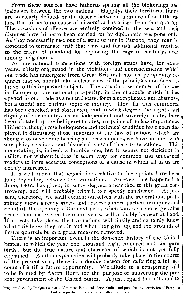 ―78― ―78―
From these sources have hitherto sprung all the bickerings and
jealousies between the two nations. Happily, their territorial limits
are so clearly defined, or the deserts between them are of so little va-
lue, that hitherto no cause of dissention has arisen from that quarter.
The occasions of offence are entirely confined to the sea, and their
disputes have hitherto been carried on by diplomatic weapons only.
As they necessarily rise out of a state of war in Europe, they may be
expected to terminate with that war, and furnish additional motives
to the friend of mankind for deploring the rage of hostility, even
among neighbours.
As our national transactions with foreign states have, for some
years, chiefly originated in the violations and encroachments which
our trade has undergone from Great Britain, historical perspicuity re-
quires that we should take a clear view of the principles and facts re-
lative to this important subject. The actual consequences of the war
in Europe to our national prosperity, in the channels which it has
opened to our trade as a neutral state, form a complicated and abstruse,
but a useful and curious topic of inquiry. How far this commerce
has been checked and obstructed, and to what degree the rights and
dignity of our country, as an independent and sovereign state, have
been violated by the belligerent states, are points of no less importance.
Hitherto, though much eloquence and technical erudition have been dis-
played in discussing those maxims of the law of nations which are
thought to have some ‘bearing on these subjects, we have not met with
any plain, succinct, and historical view of these transactions. This
undertaking is, indeed, a humble one. but it seems not deficient in
utility, nor without it does it seern easy for common and unlearned
readers to form accurate conceptions of a cause in which all of us are
deeply interested.
It is well known that negociations relative to these points have been
long depending between the two nations. An event that happened in
June, 1807, has given, in some degree, a new face to this great con-
troversy, and will probably bring it to a speedy conclusion. At pre-
sent, therefore, we shall content ourselves with the general and preli-
minary views already given, and reserve a more particular inquiry and
detail till the opening of the next year, when war, or a more genuine
peace than has existed for many years, will probably be near at hand.
If a treaty take place, the two nations will finally and certainly know
what privileges they retain and what they give up, and the grounds of
future quarrels be in a great measure removed.
There is an important event in the domestic history of the United
States, to which the year one thousand eight hundred and six gave
birth; but the true nature and character of which is not yet fully
explained. As this explanation will probably take place in the course
of the present year, there is a double reason for deferring a full ac-
count of it till a future opportunity. We allude to a conspiracy said
to be formed by Aaron Burr, for the purpose of subverting the pre-
sent government of the United States. A just regard to truth, and to
 ―79― ―79―
the reputation of an eminent person, will induce us for the present to
be wholly silent on this subject, and this silence we adopt with less
reluctance, because the legal inquiry now making cannot fail of giving,
in a short time, as much light and certainty to this transaction as such
subjects admit of.
|
 ―3―
―3― ―5―
―5― ―8―
―8― ―9―
―9― ―15―
―15― ―21―
―21― ―29―
―29― ―34―
―34― ―39―
―39― ―42―
―42― ―47―
―47― ―48―
―48― ―52―
―52― ―54―
―54― ―62―
―62― ―66―
―66― ―69―
―69― ―78―
―78―

























































